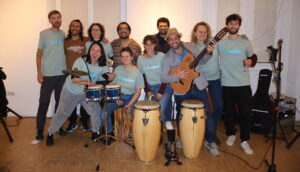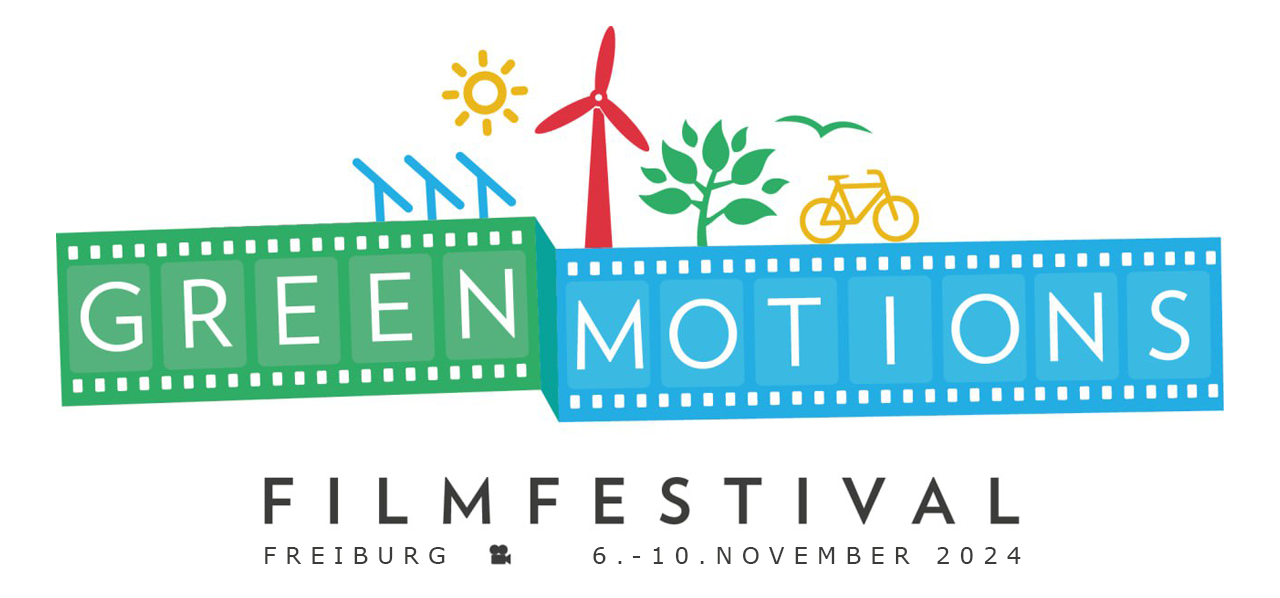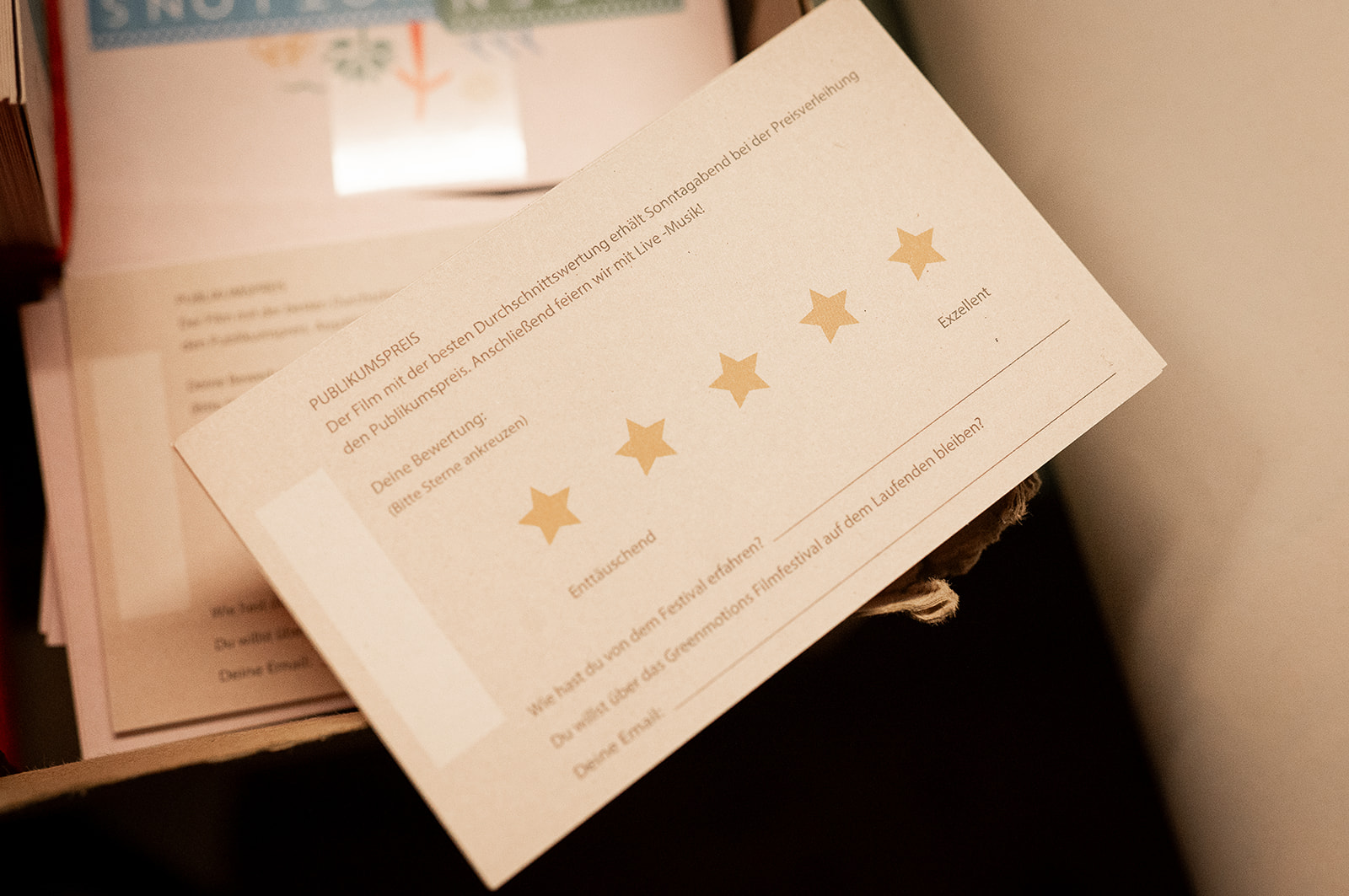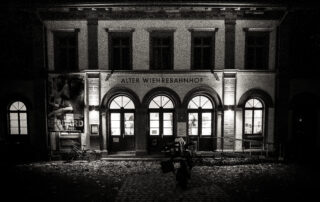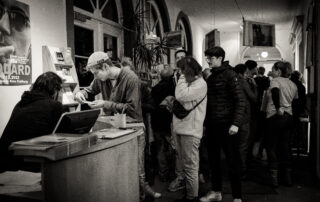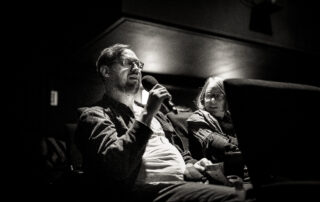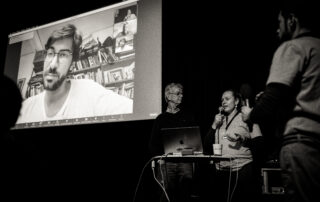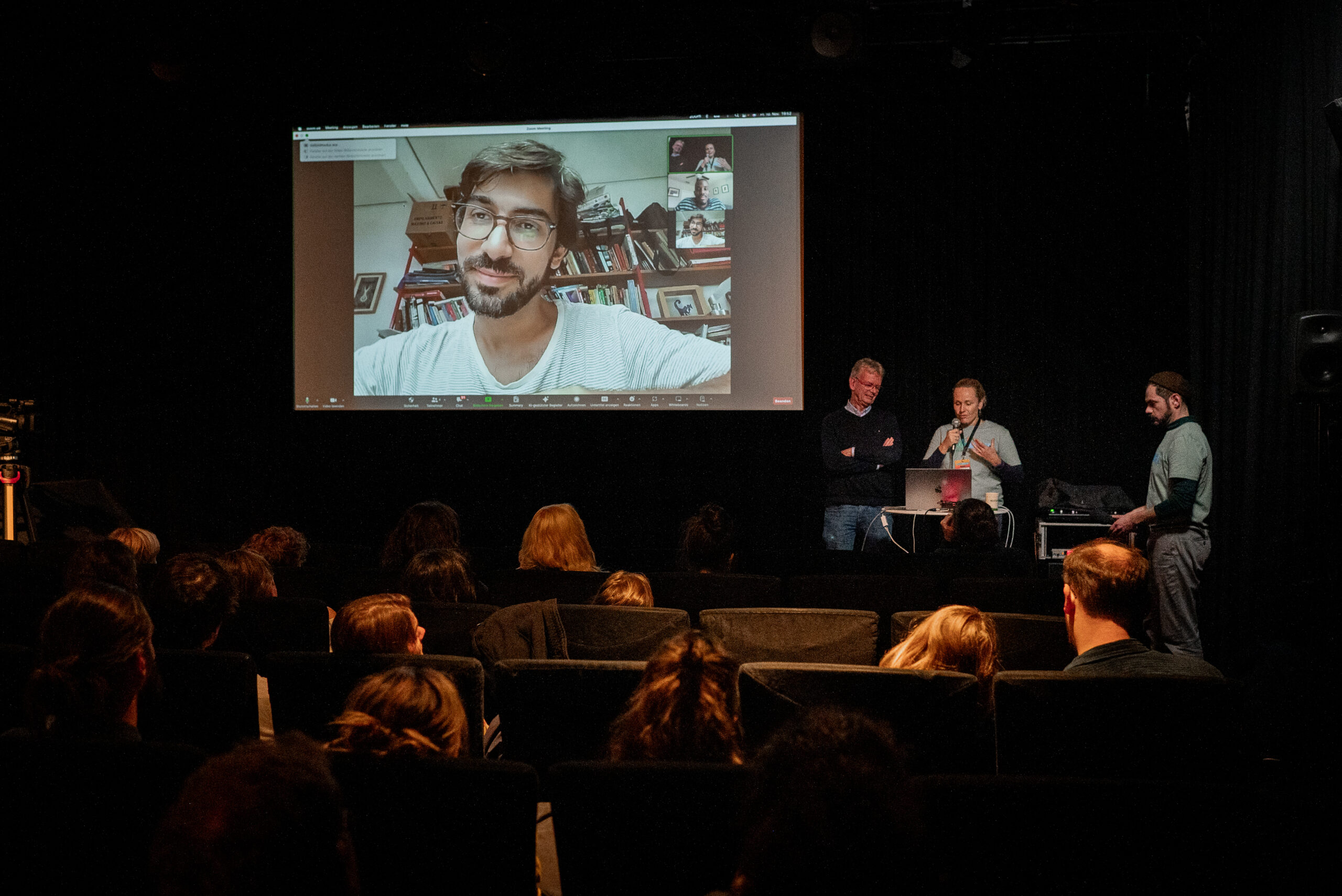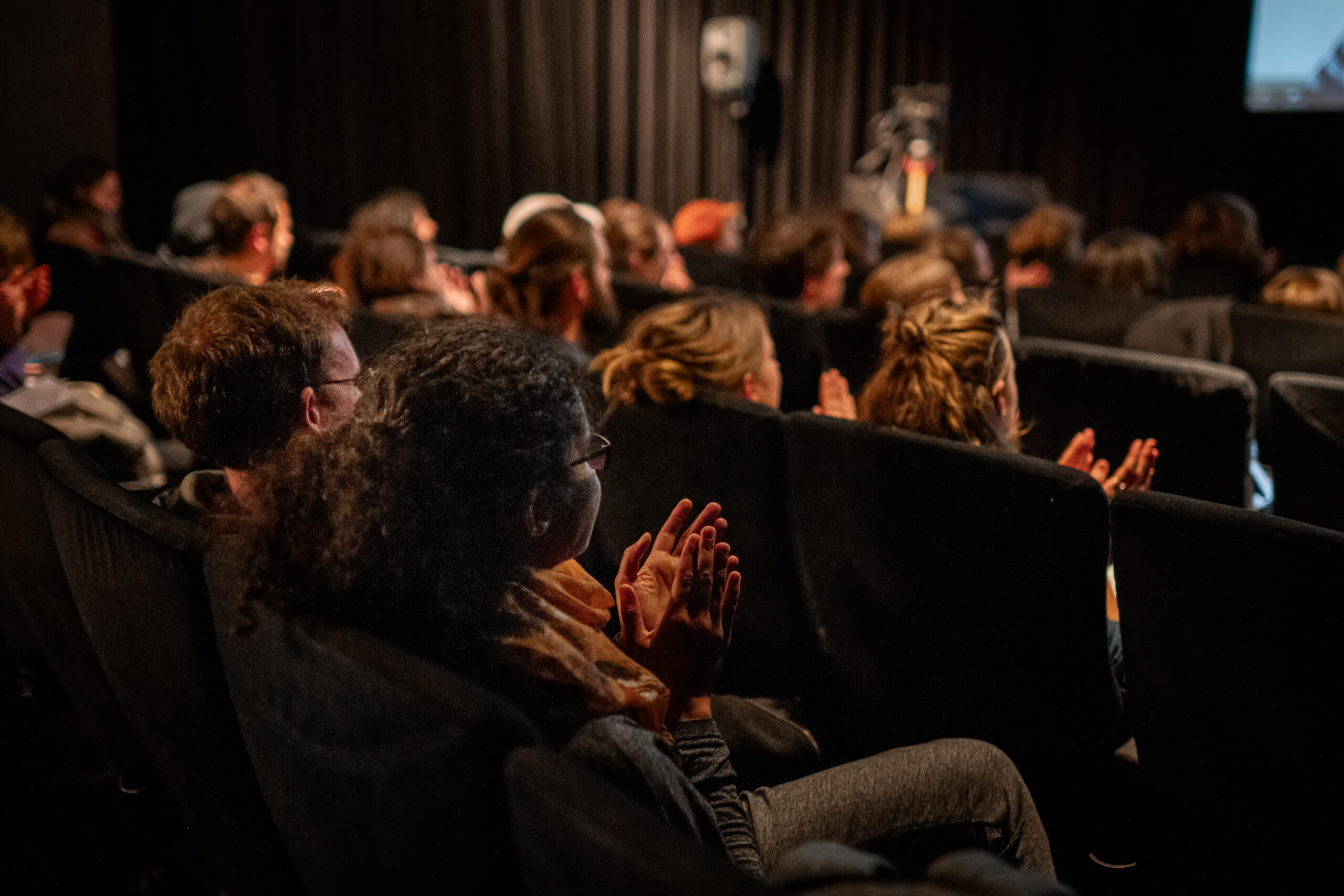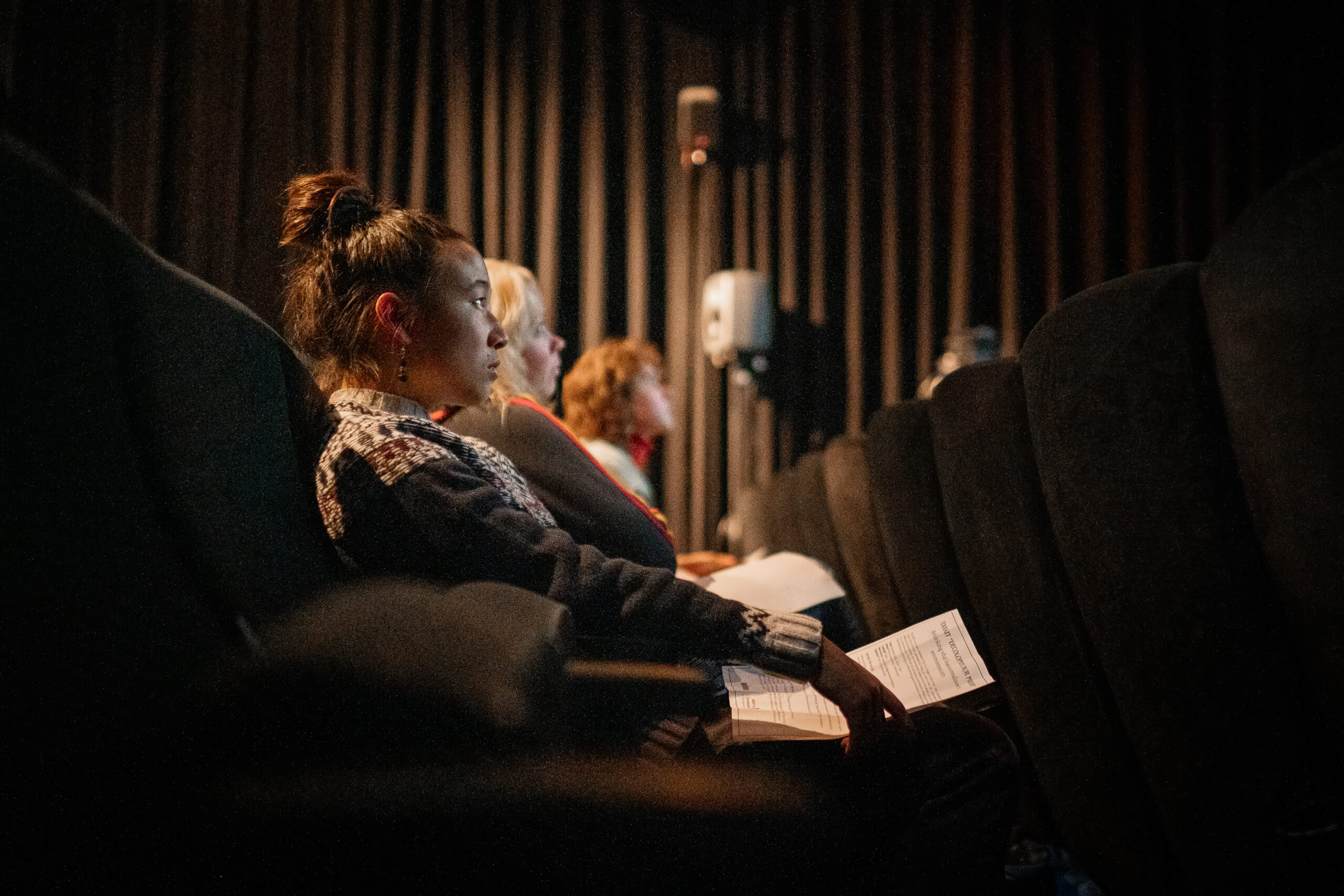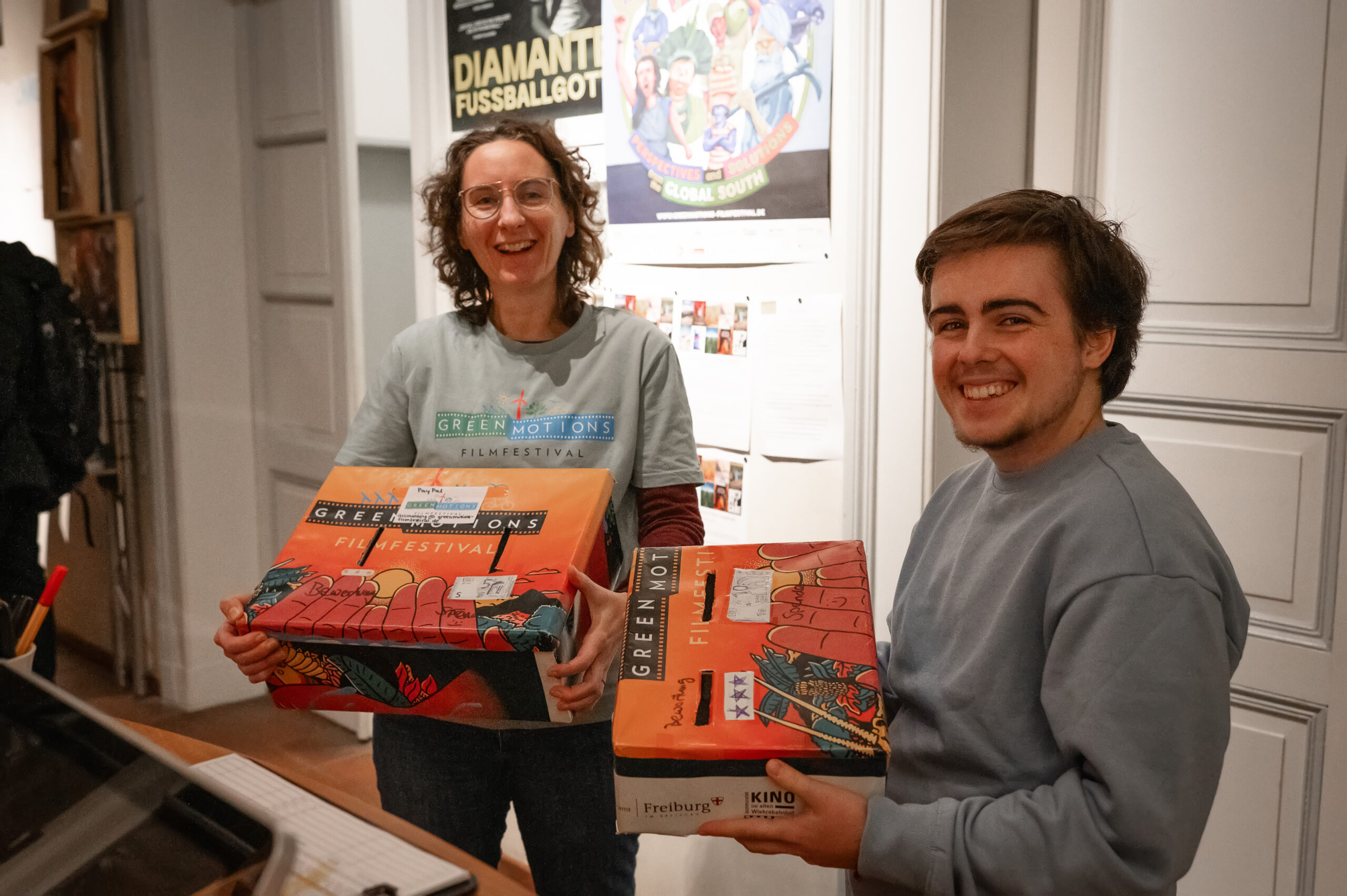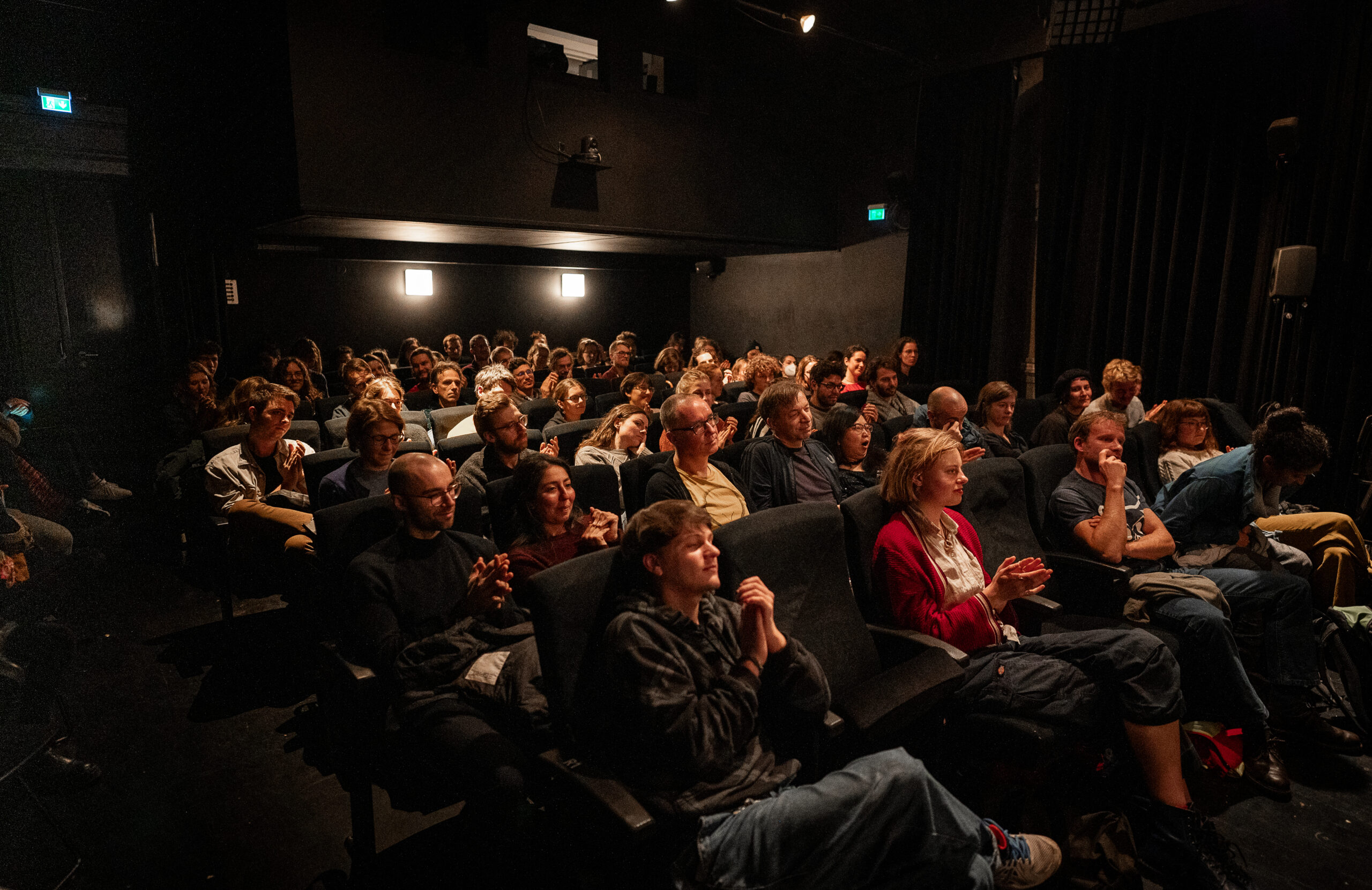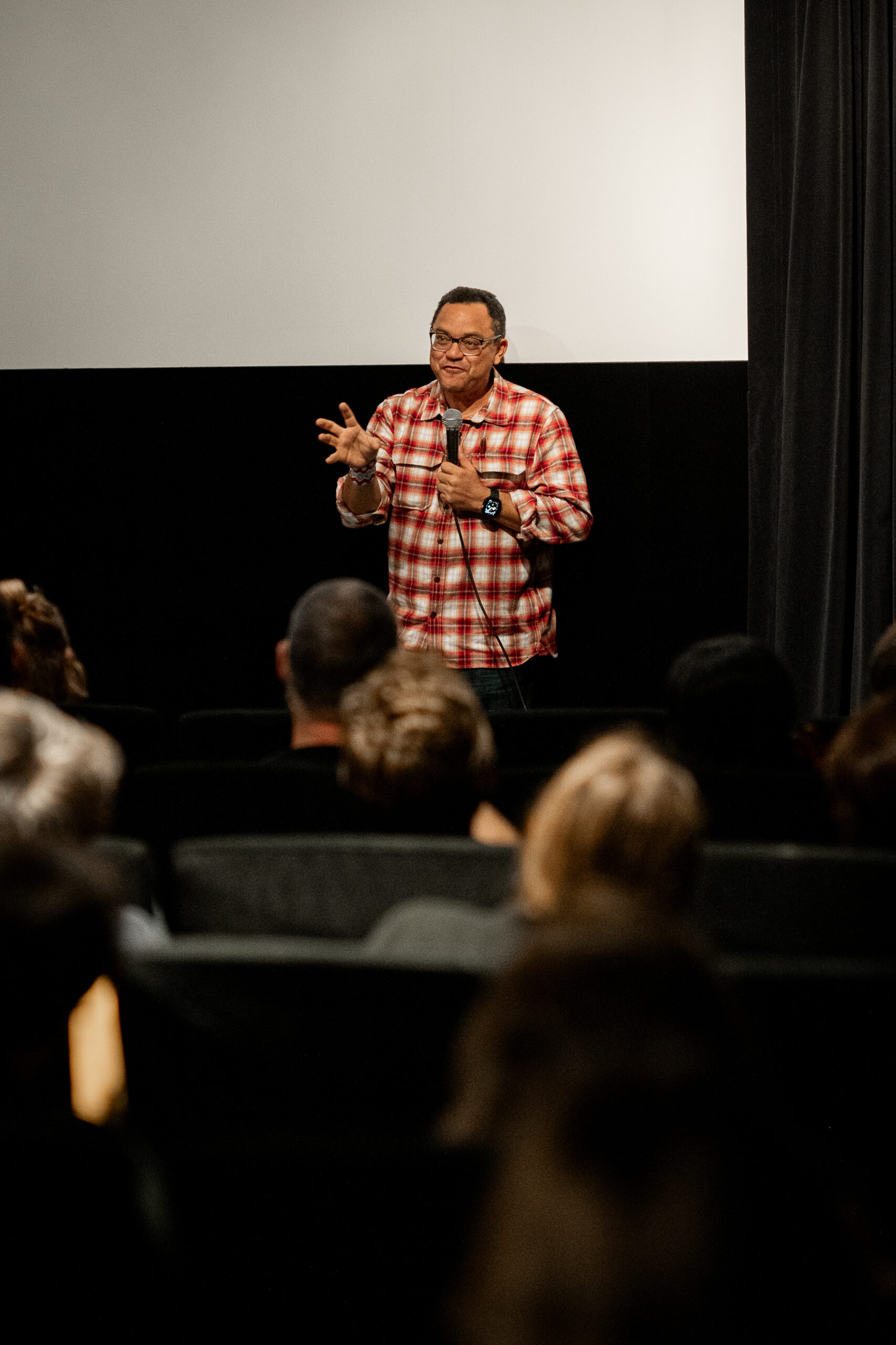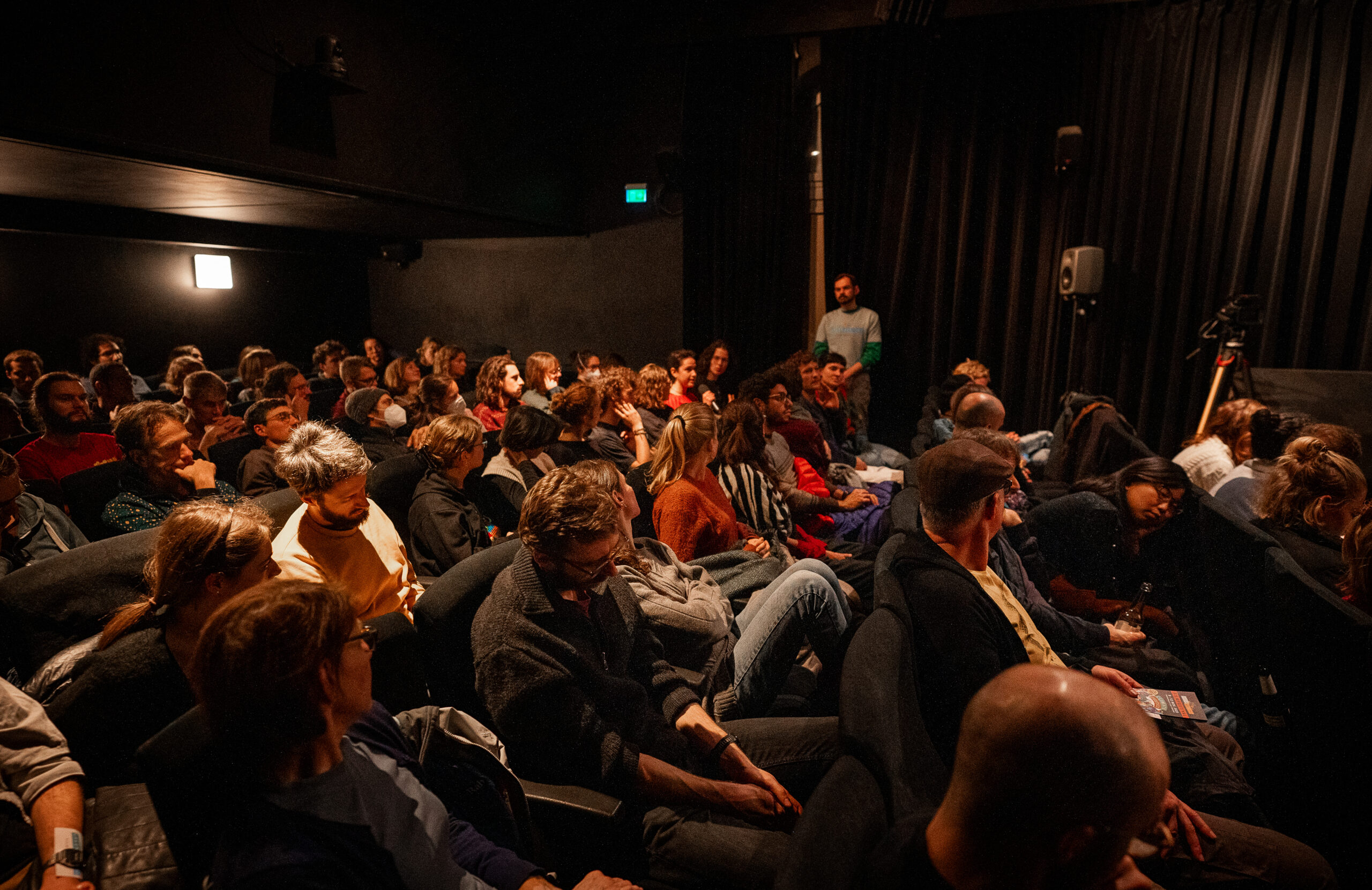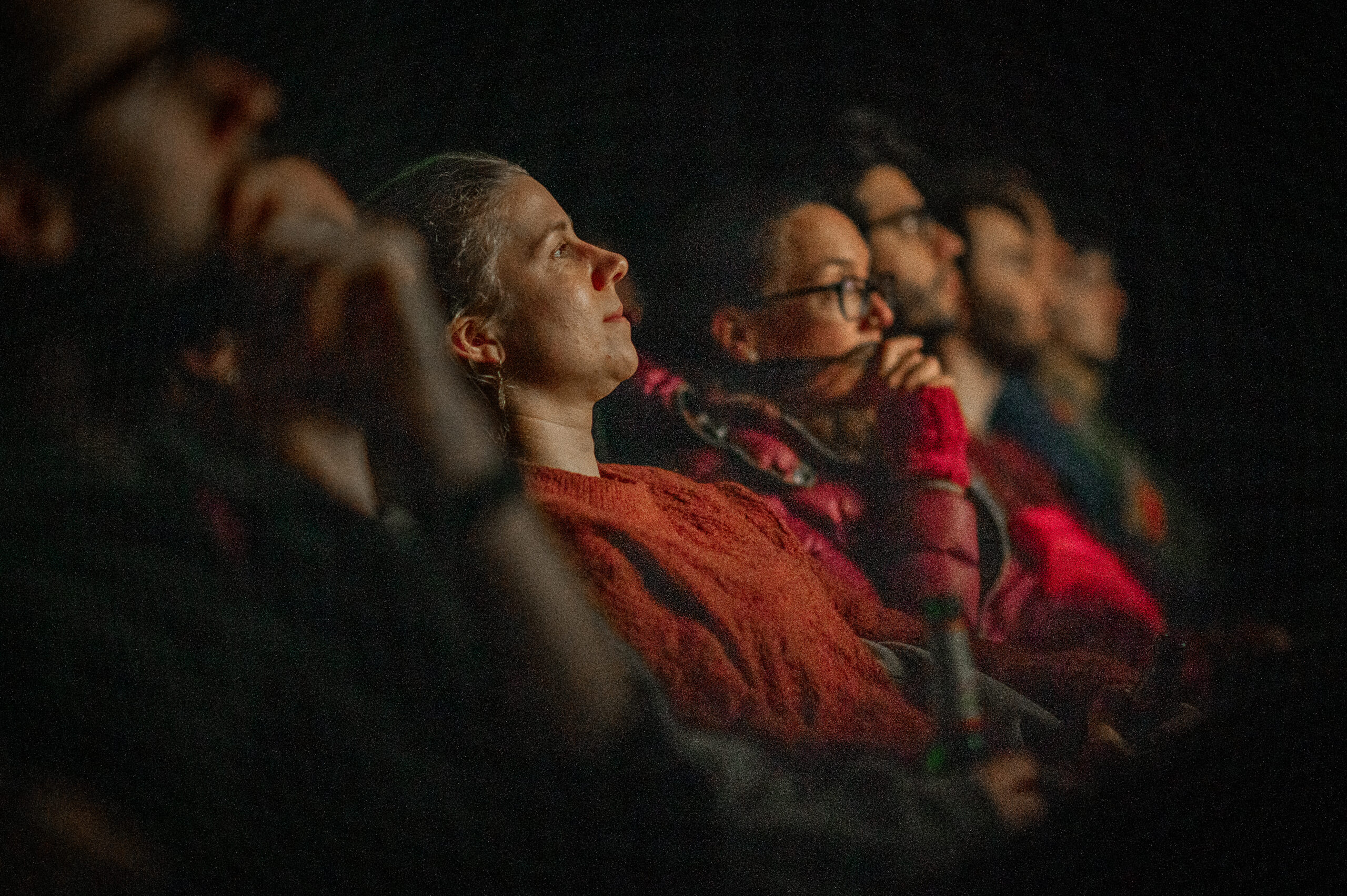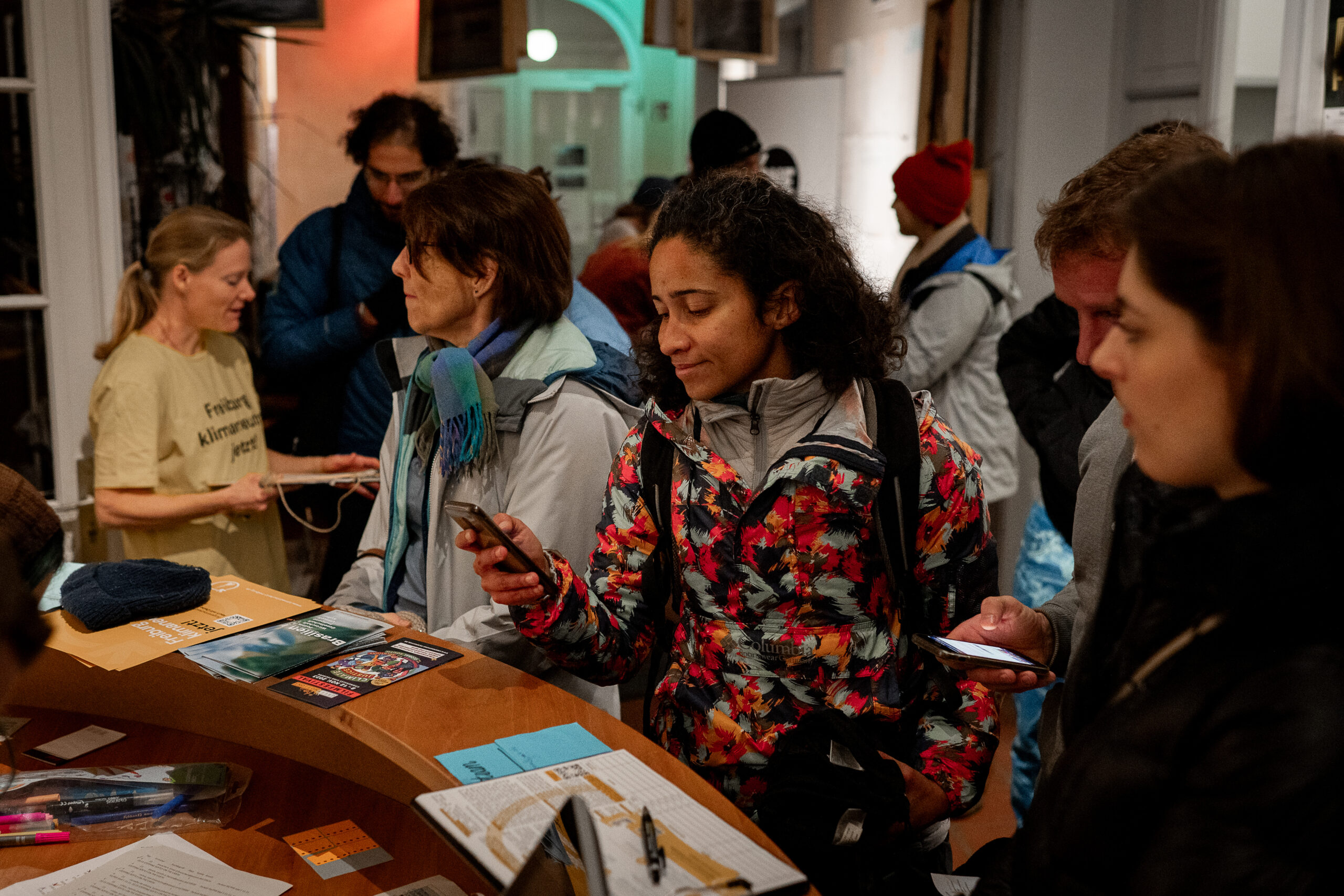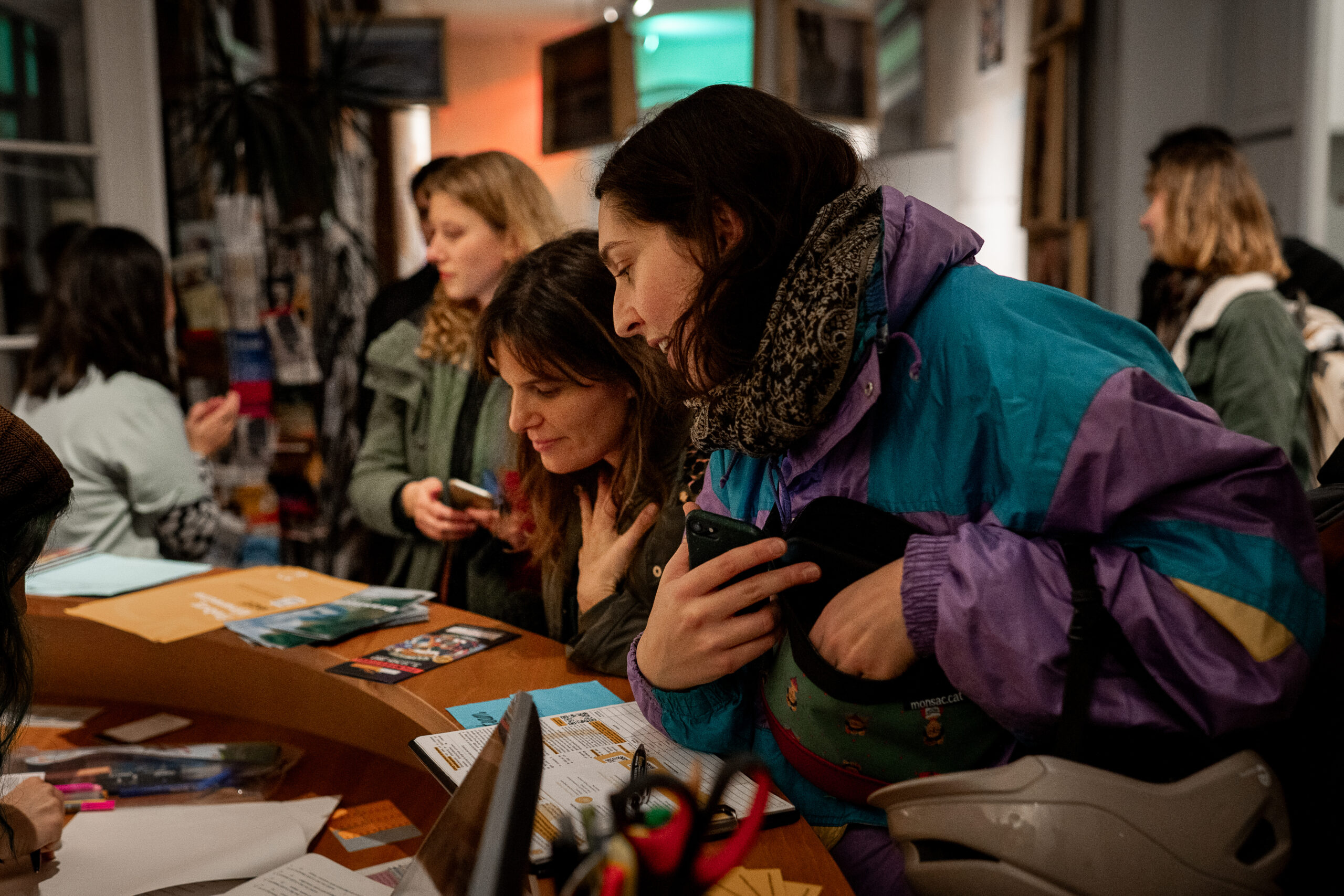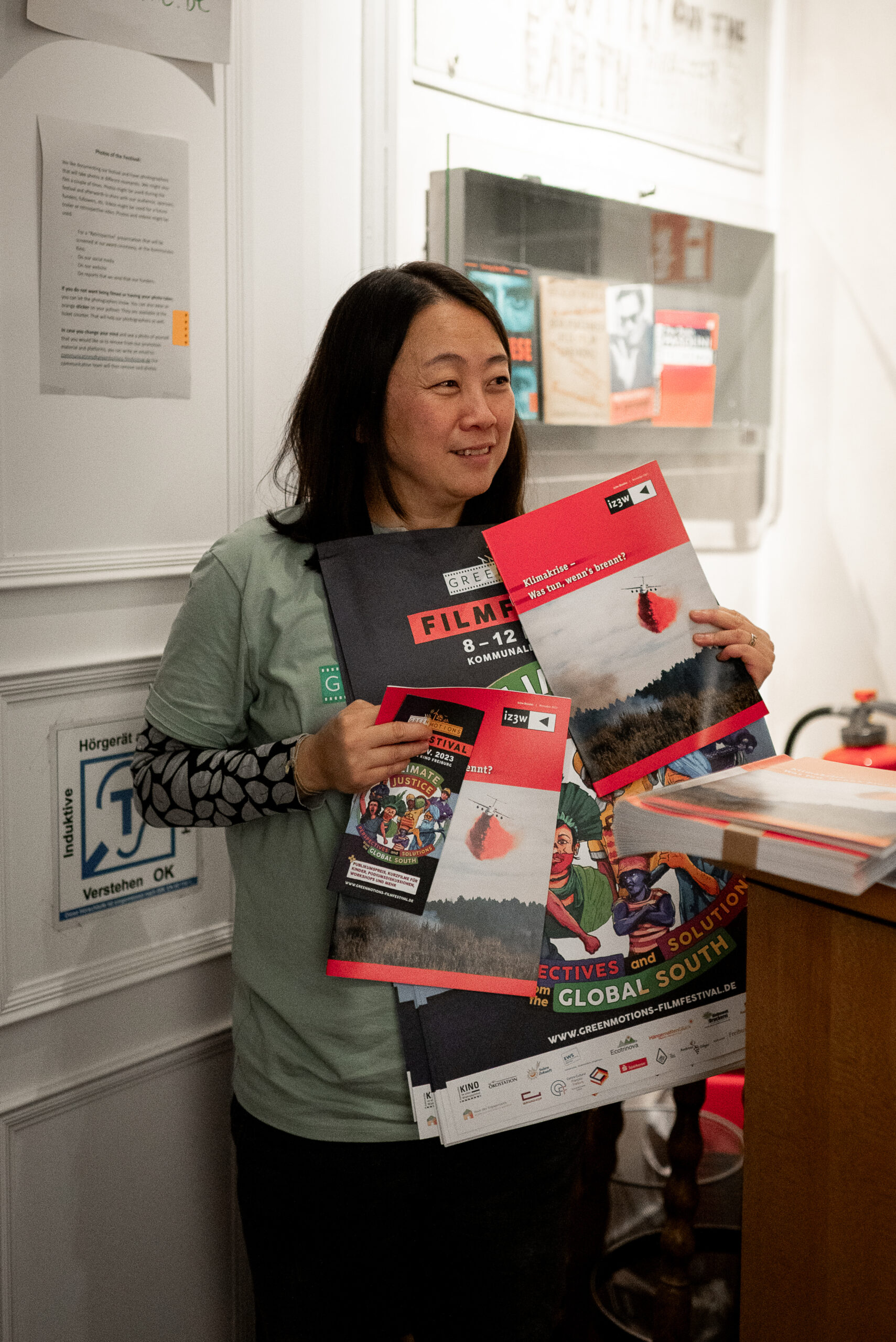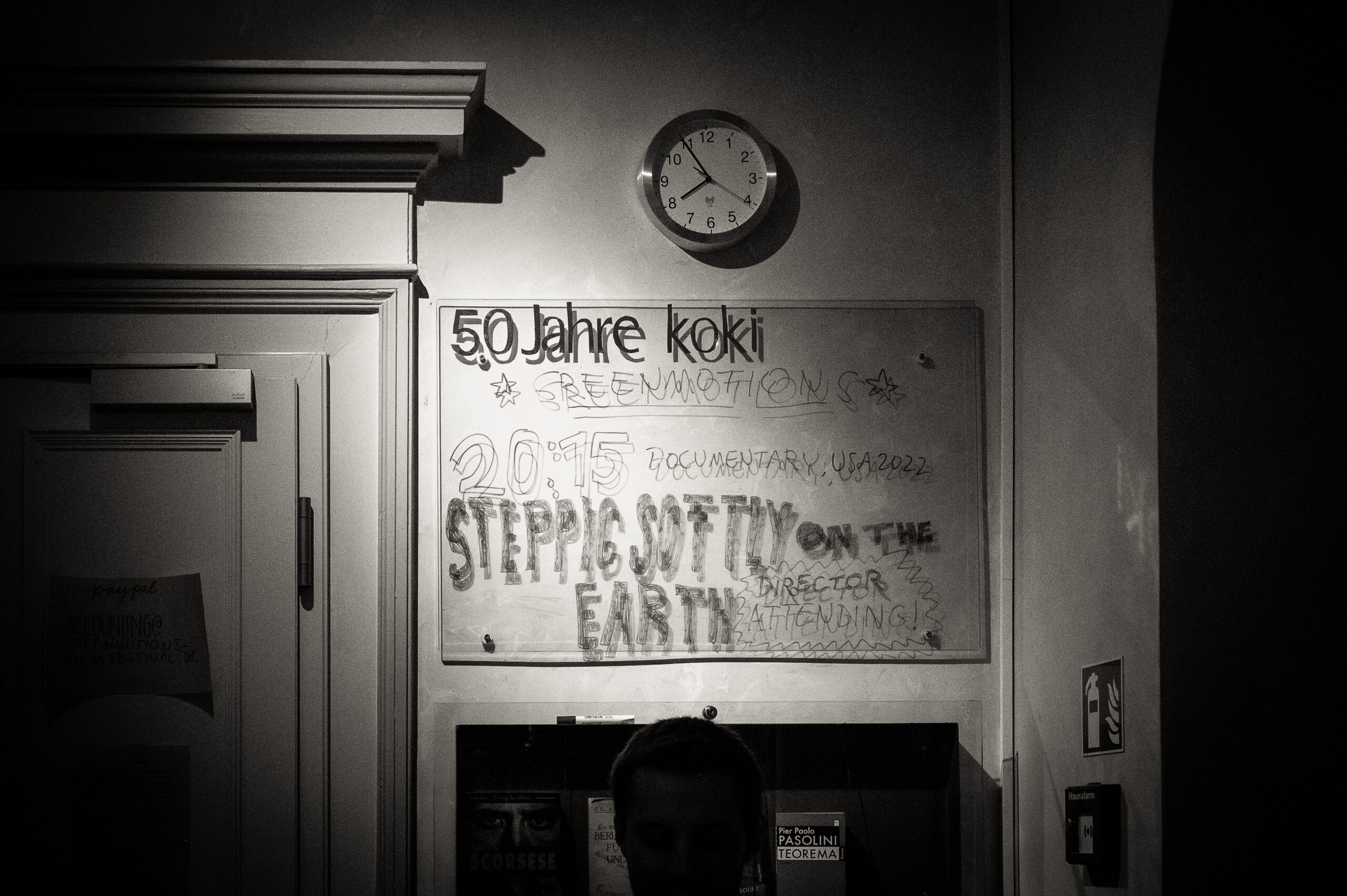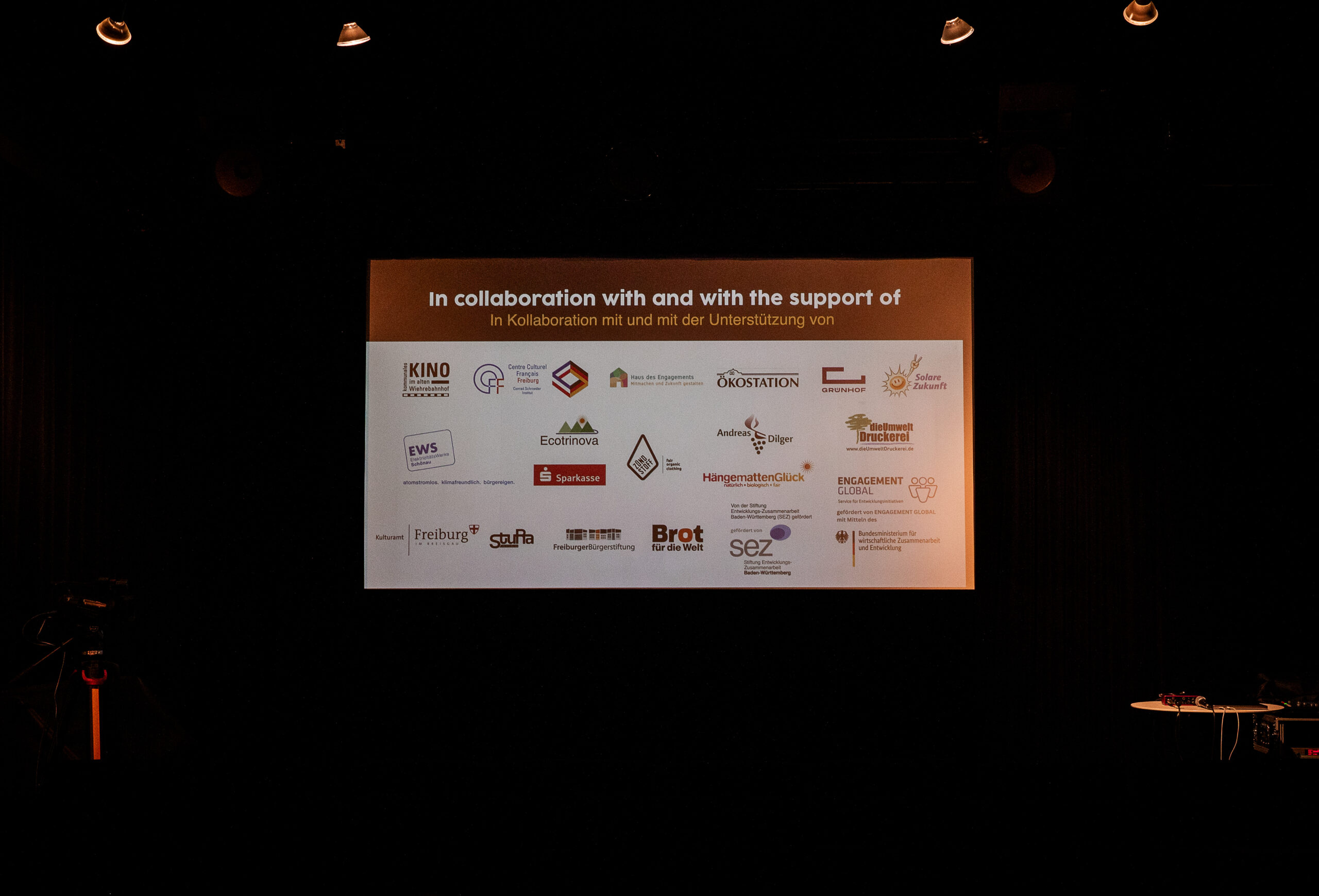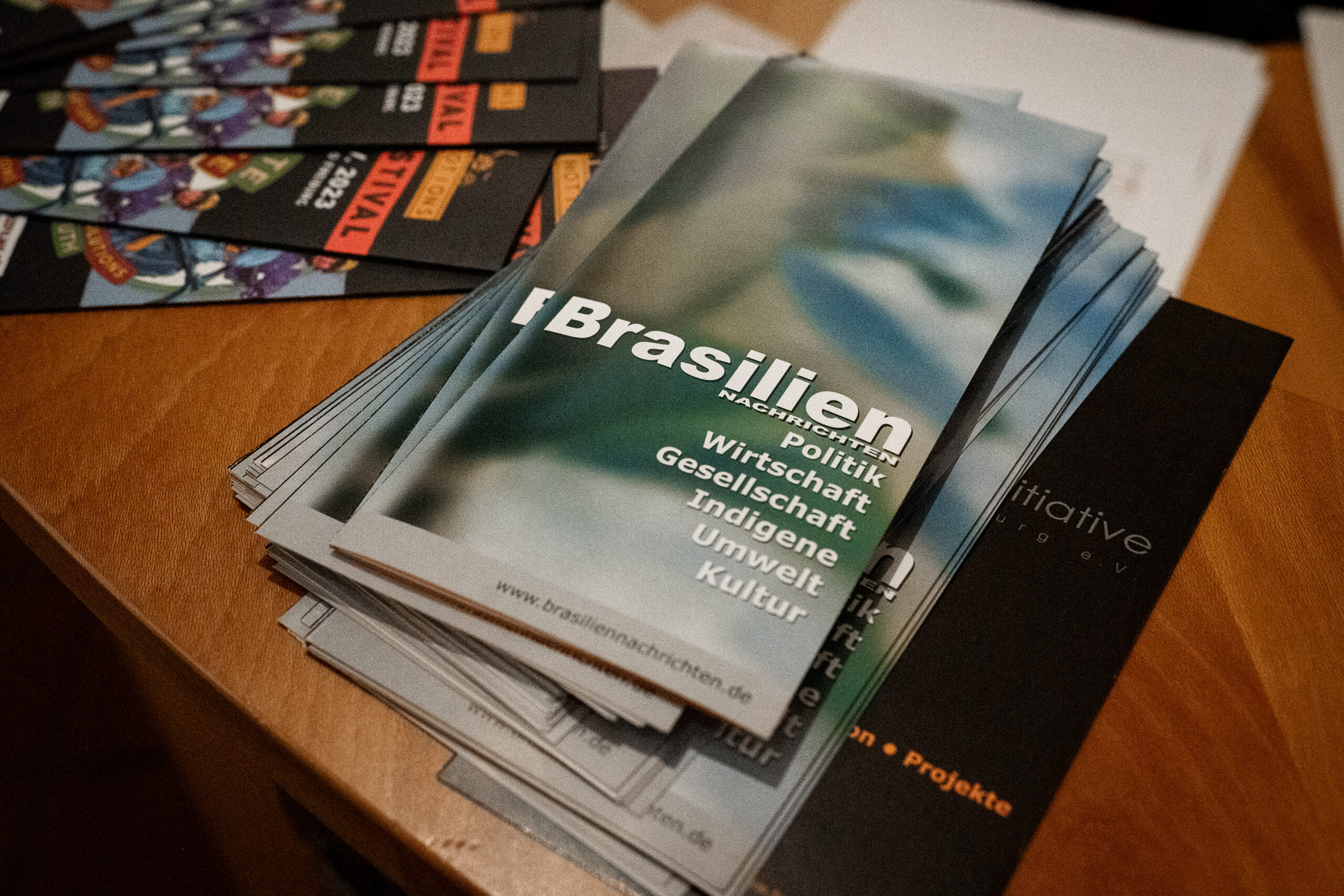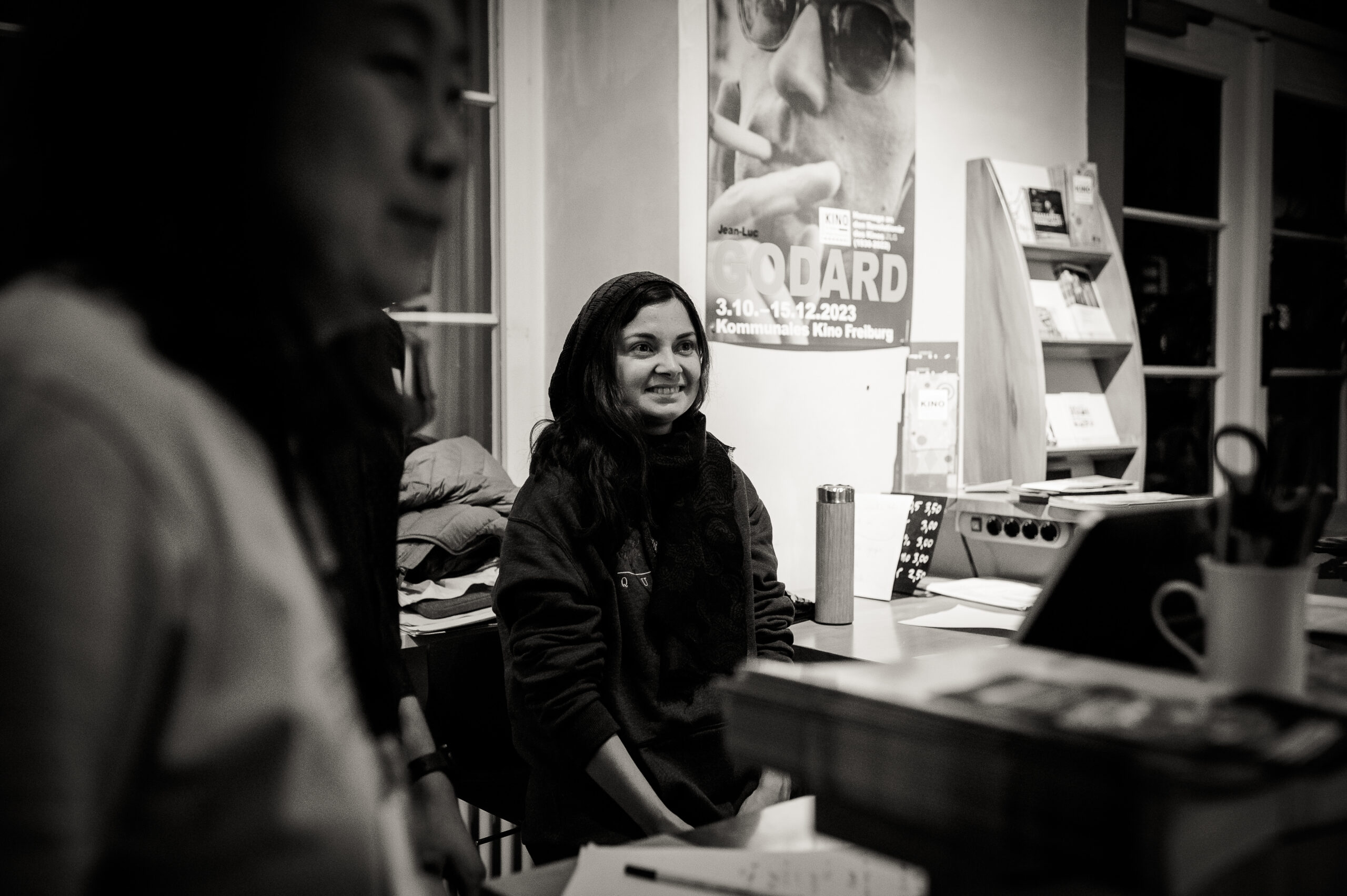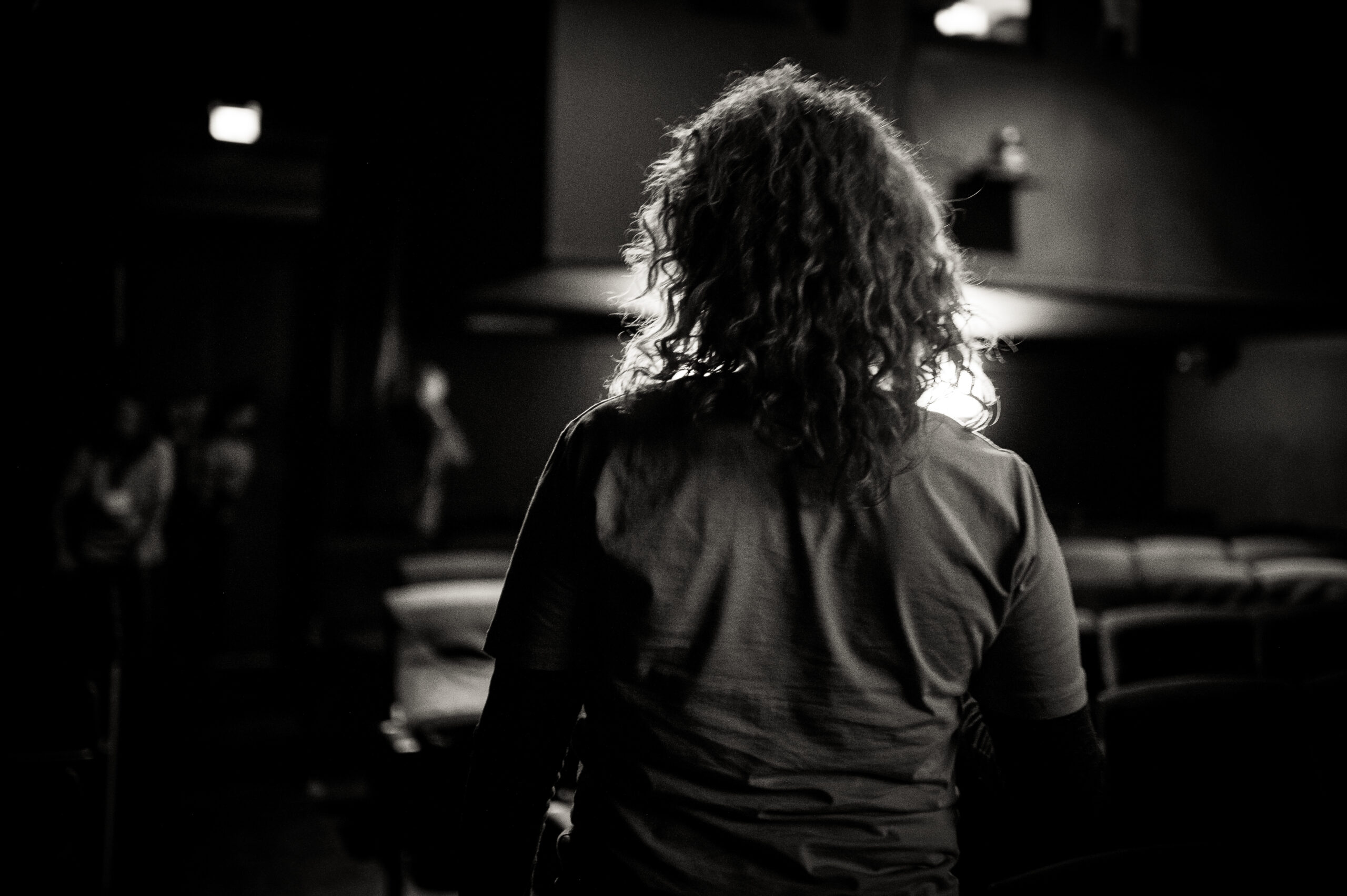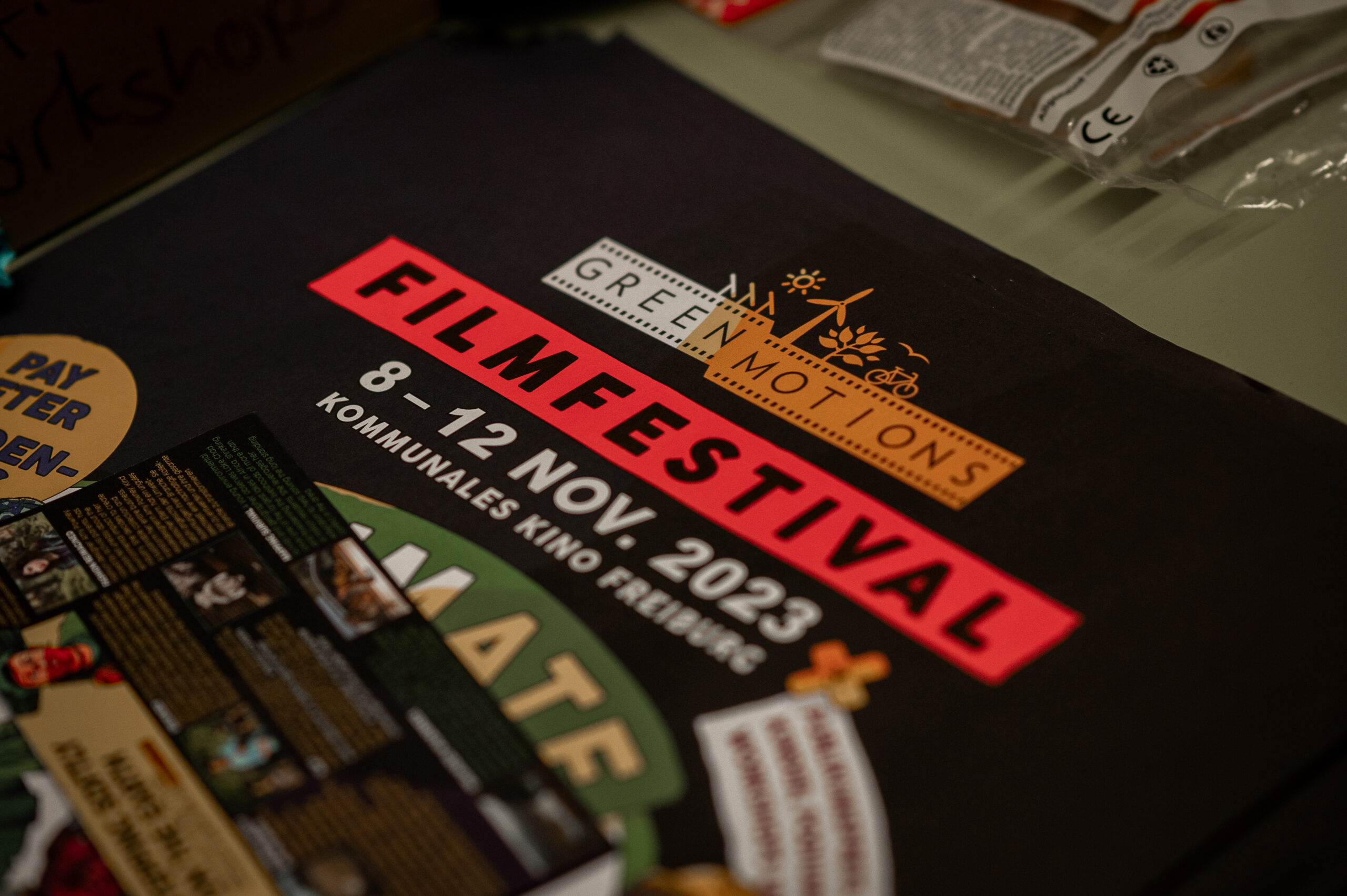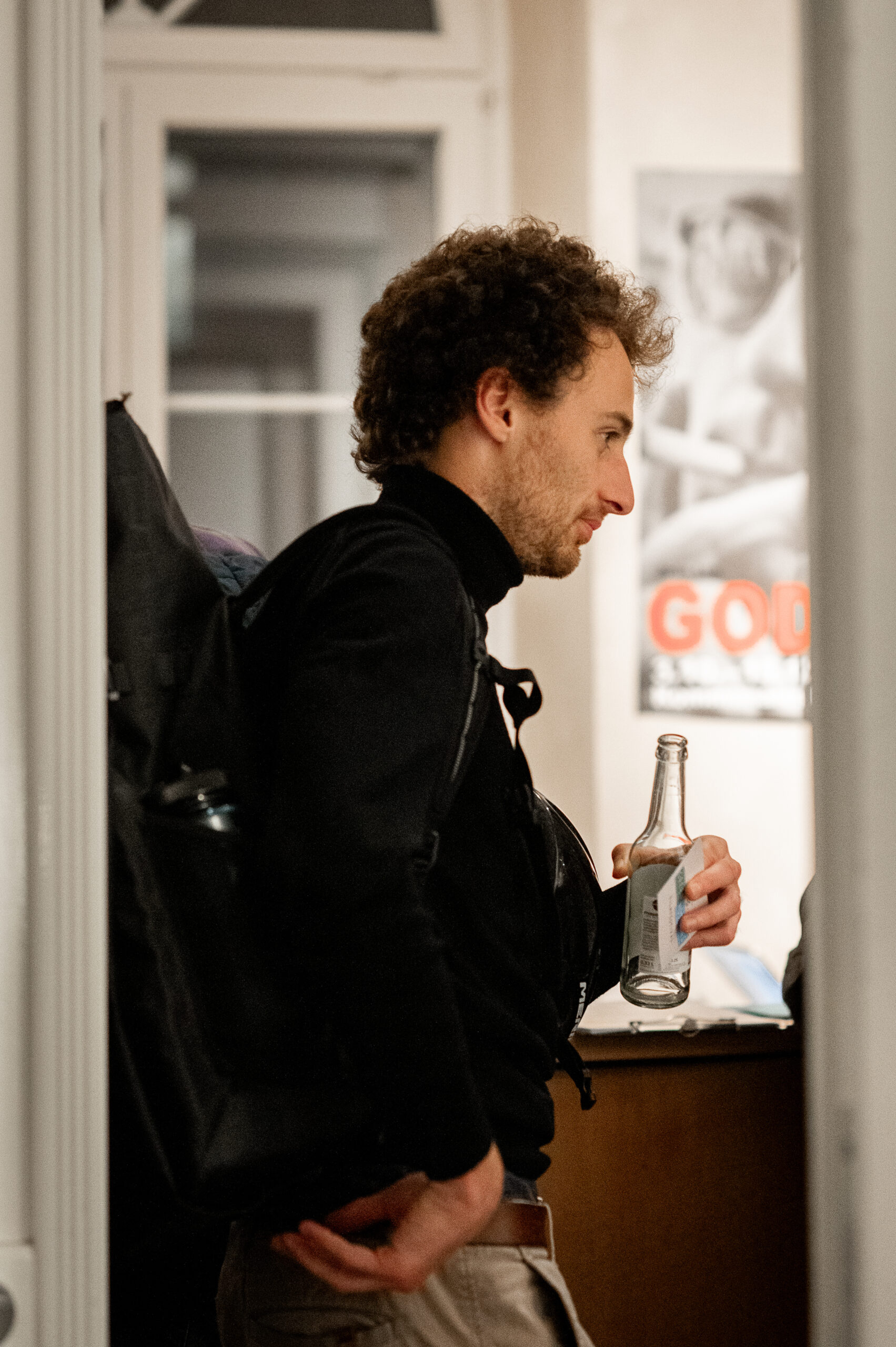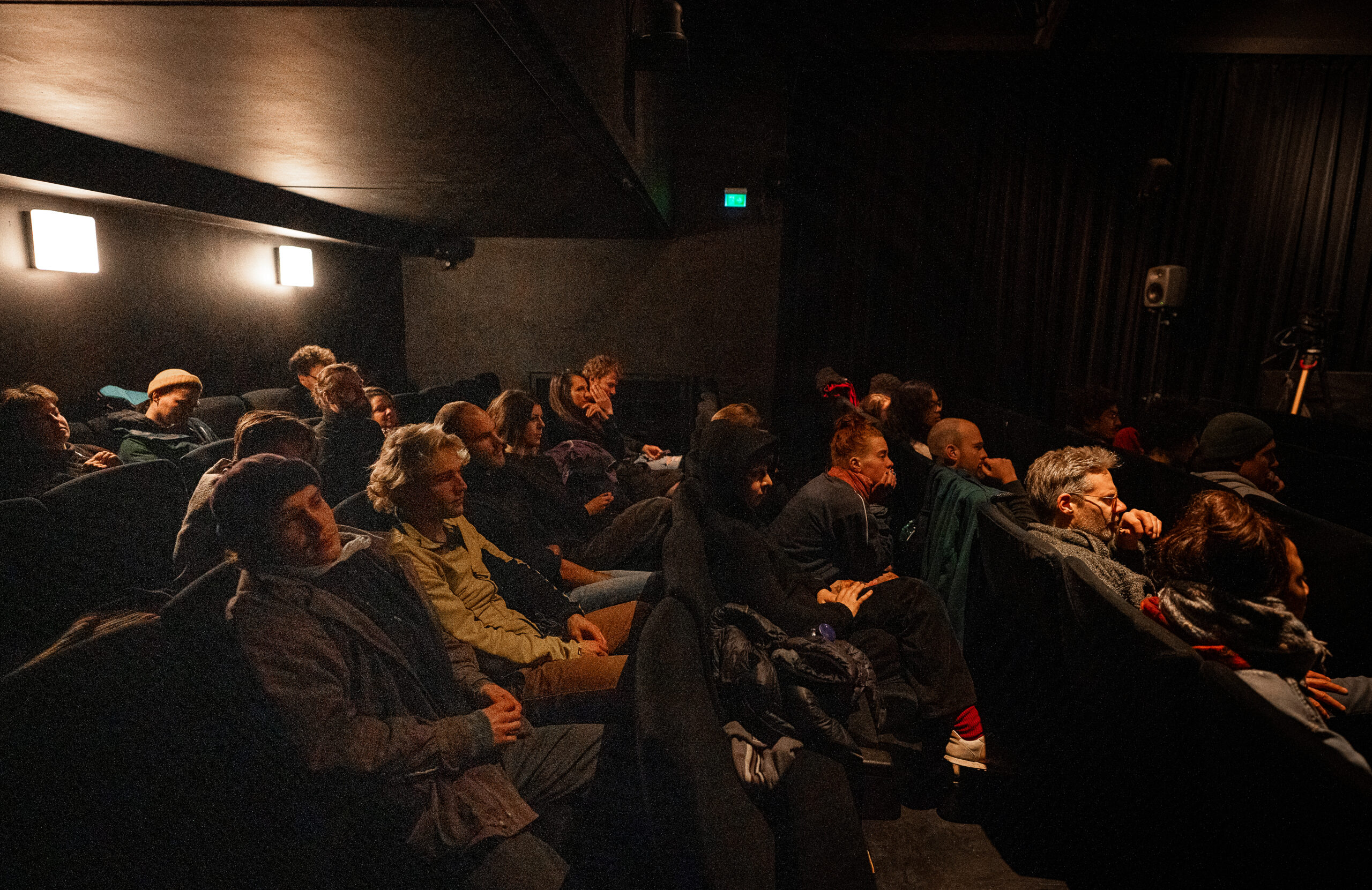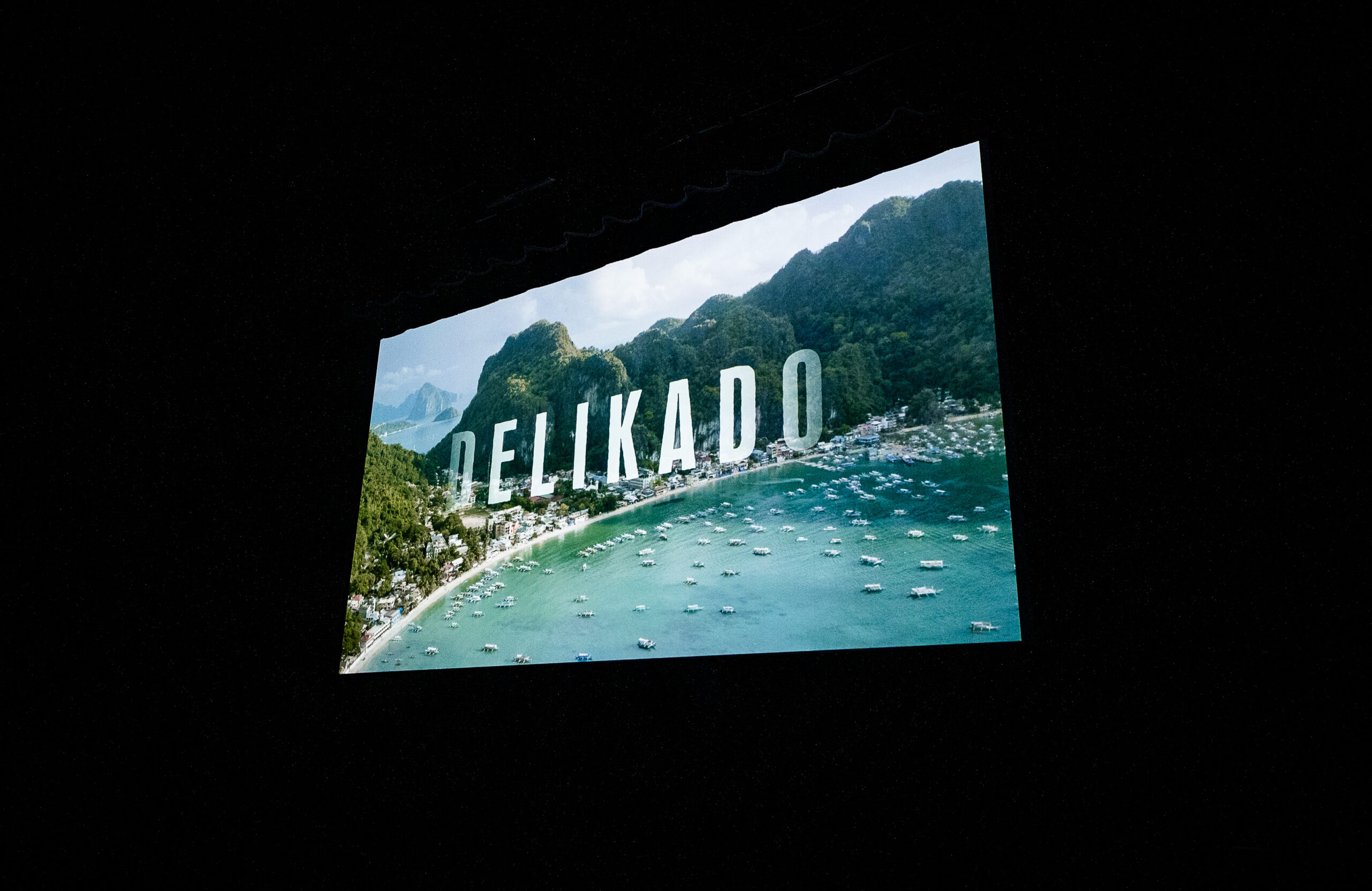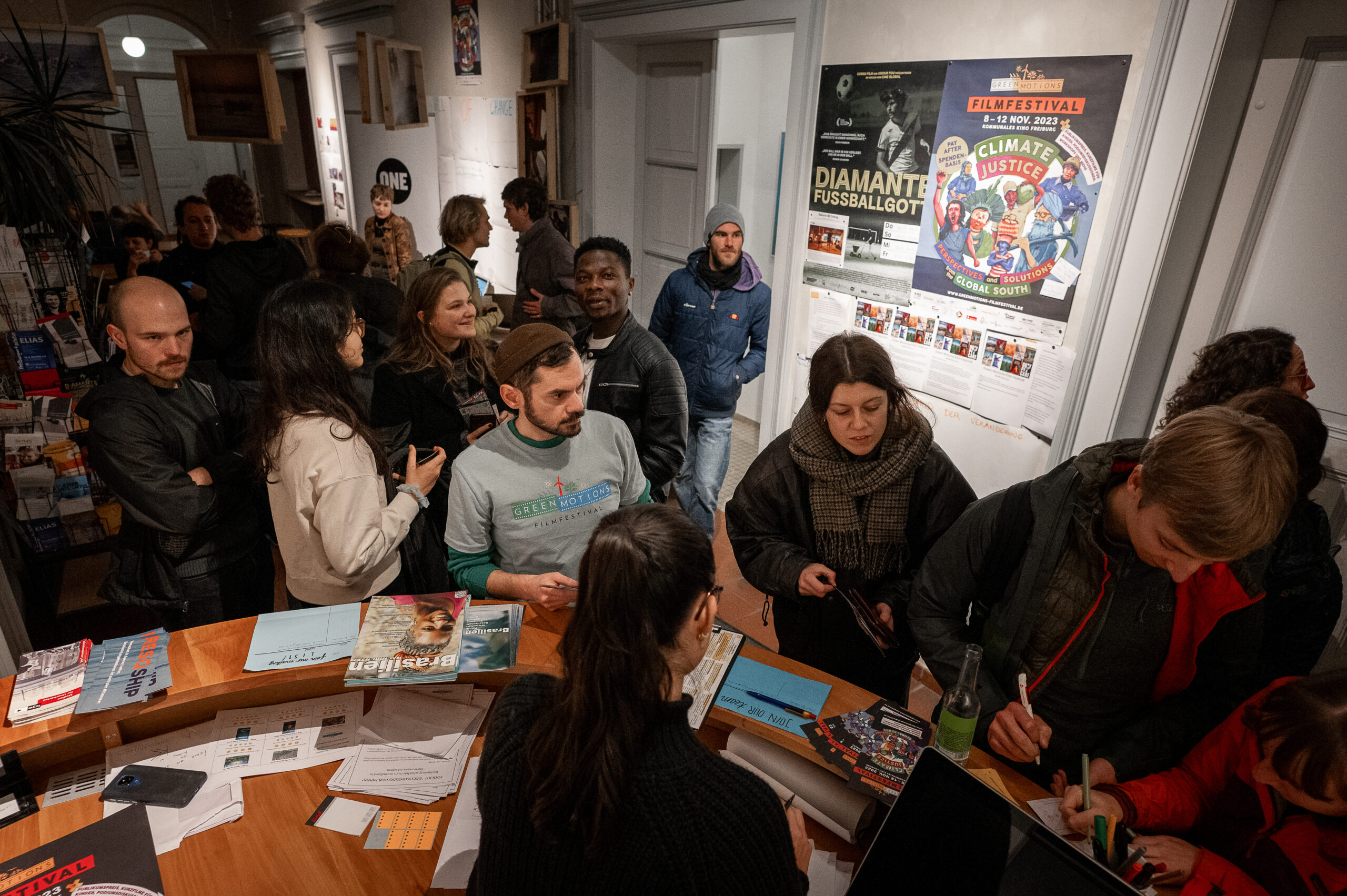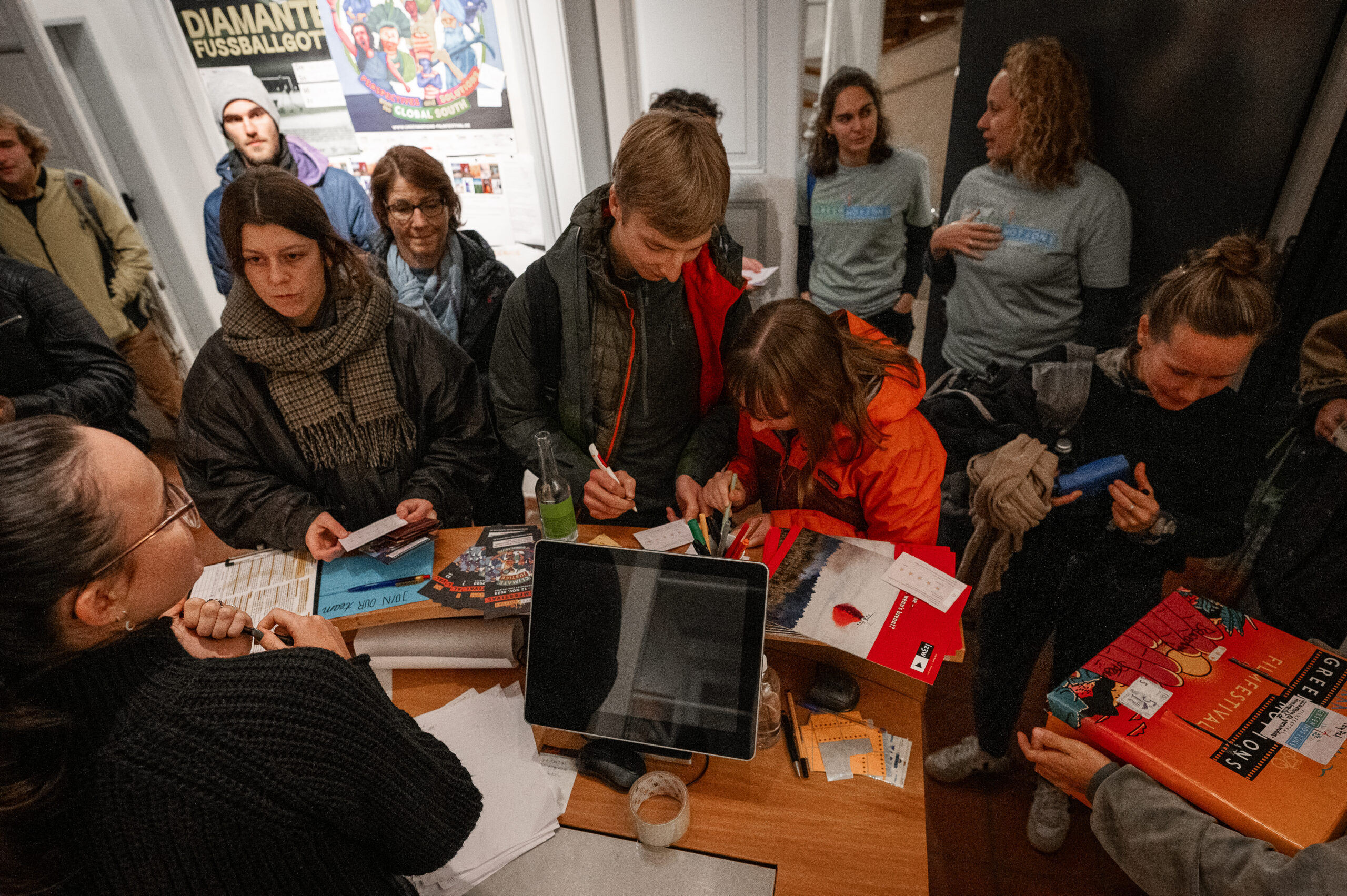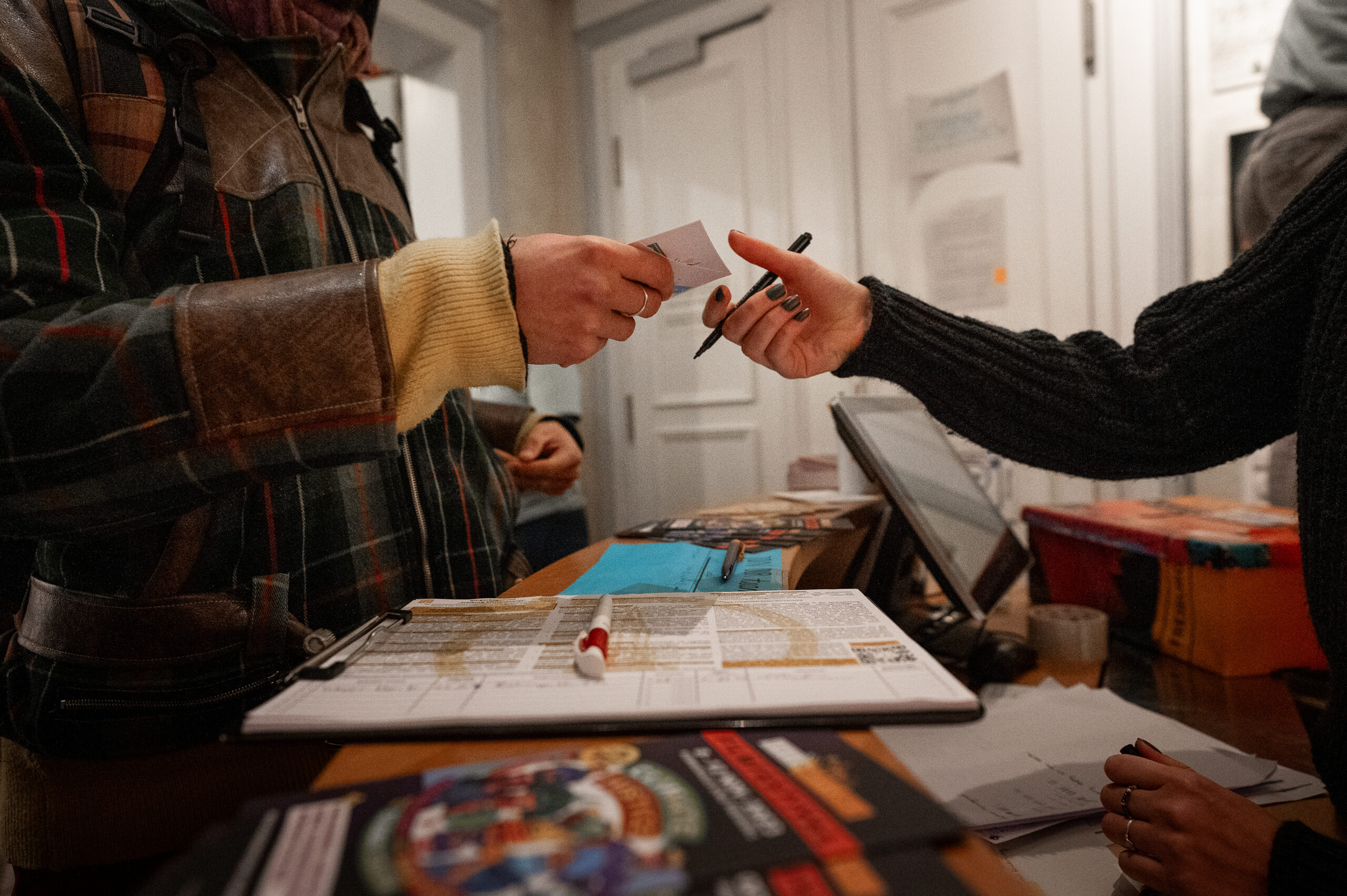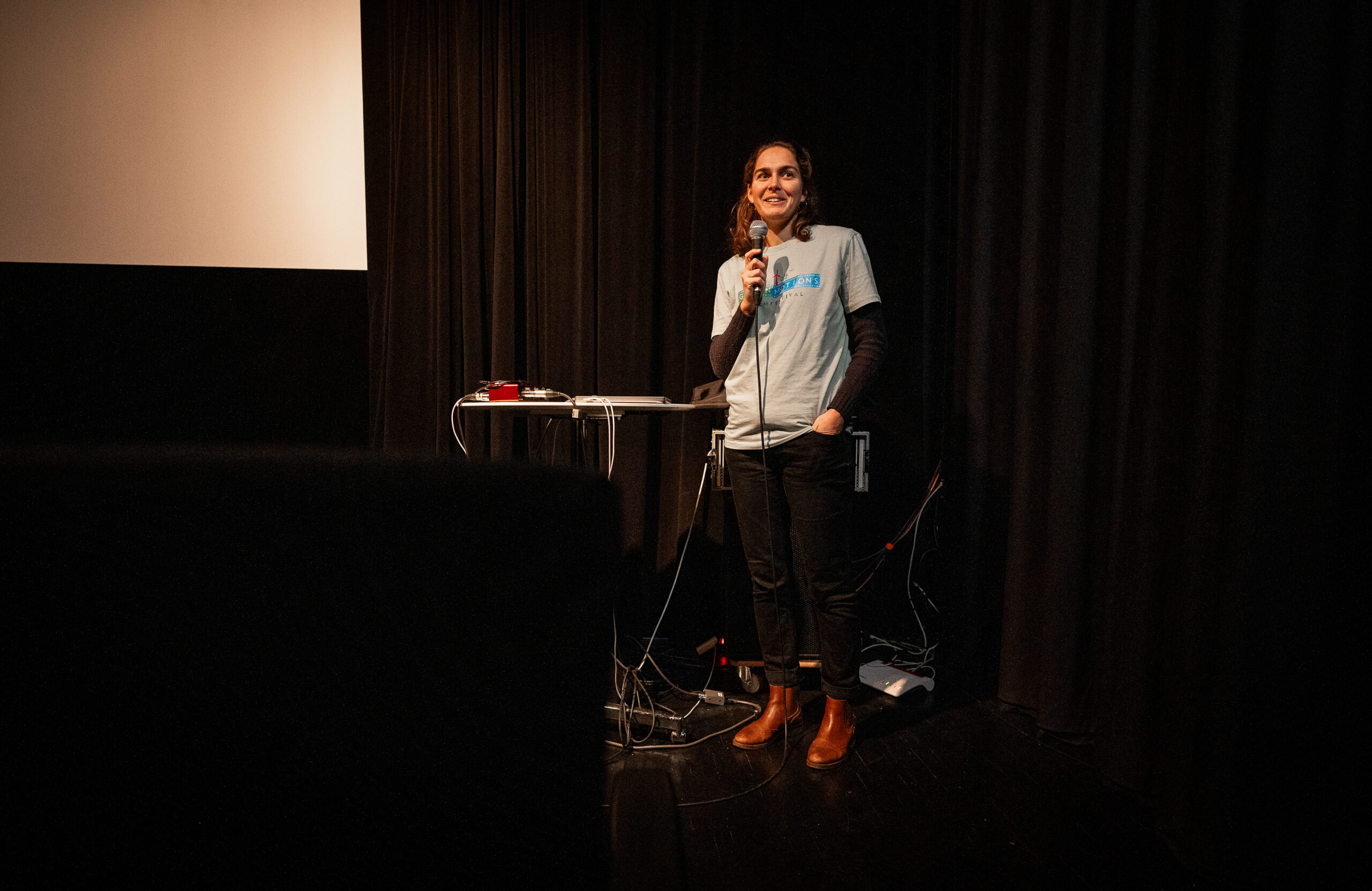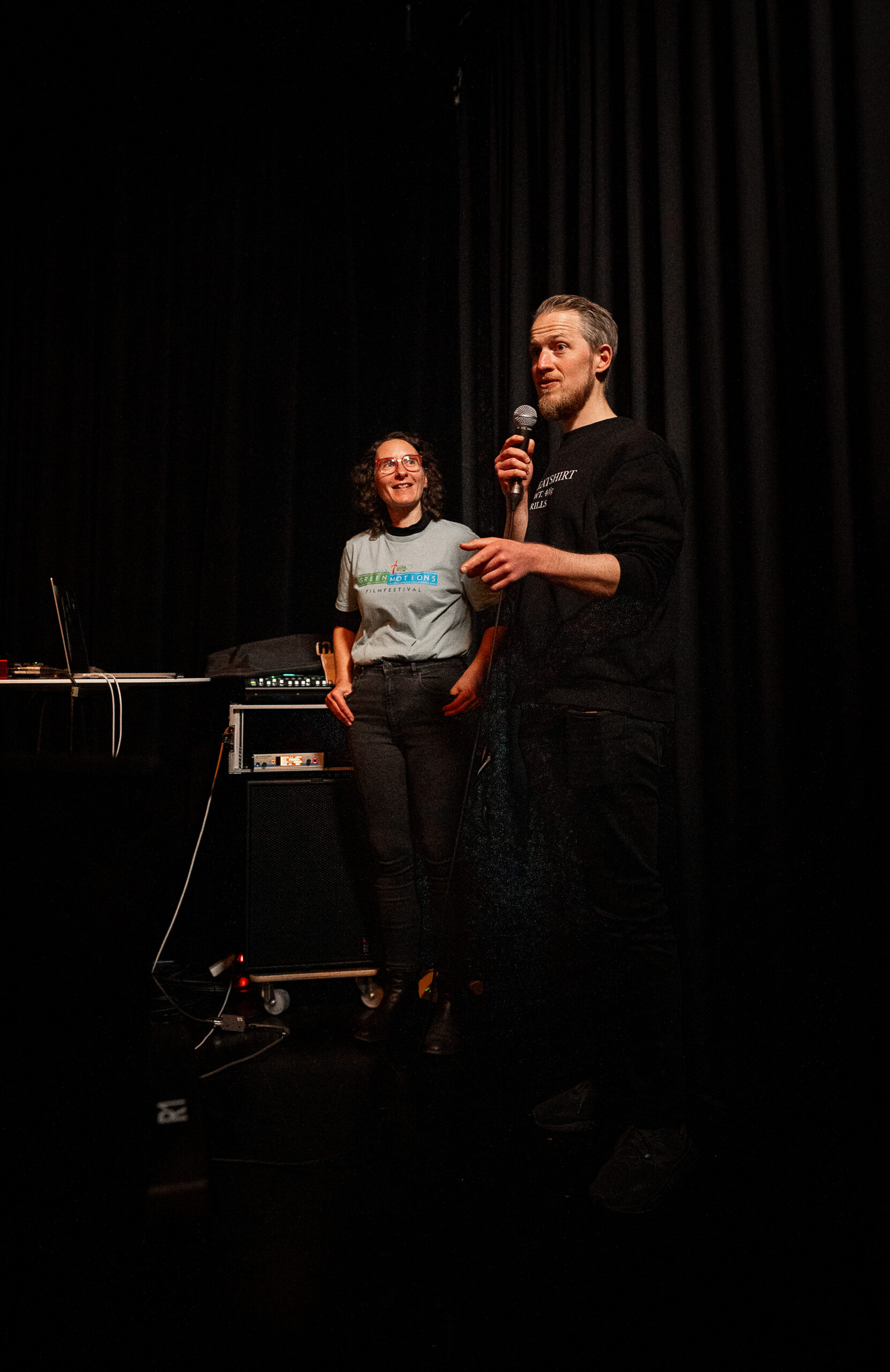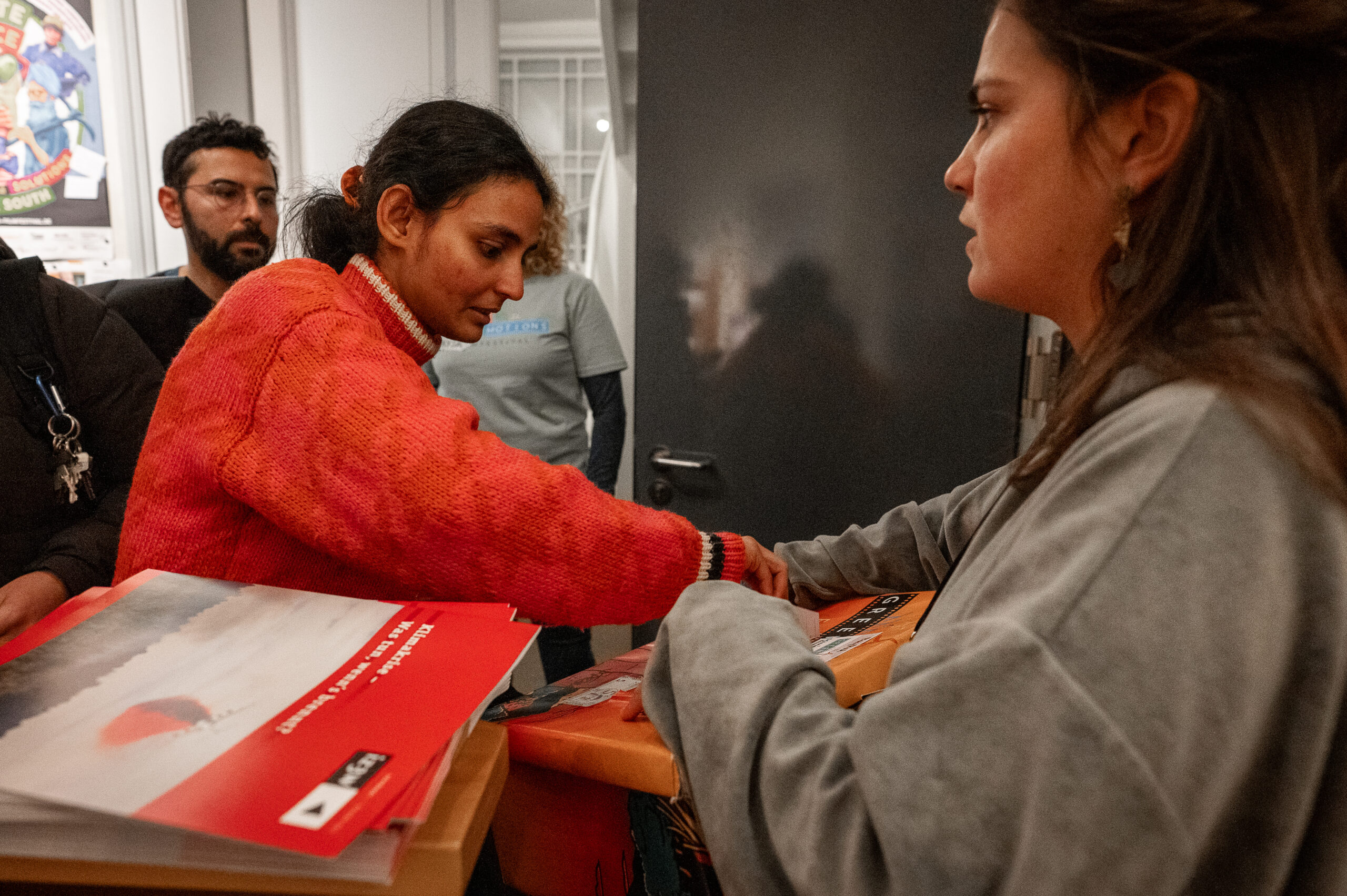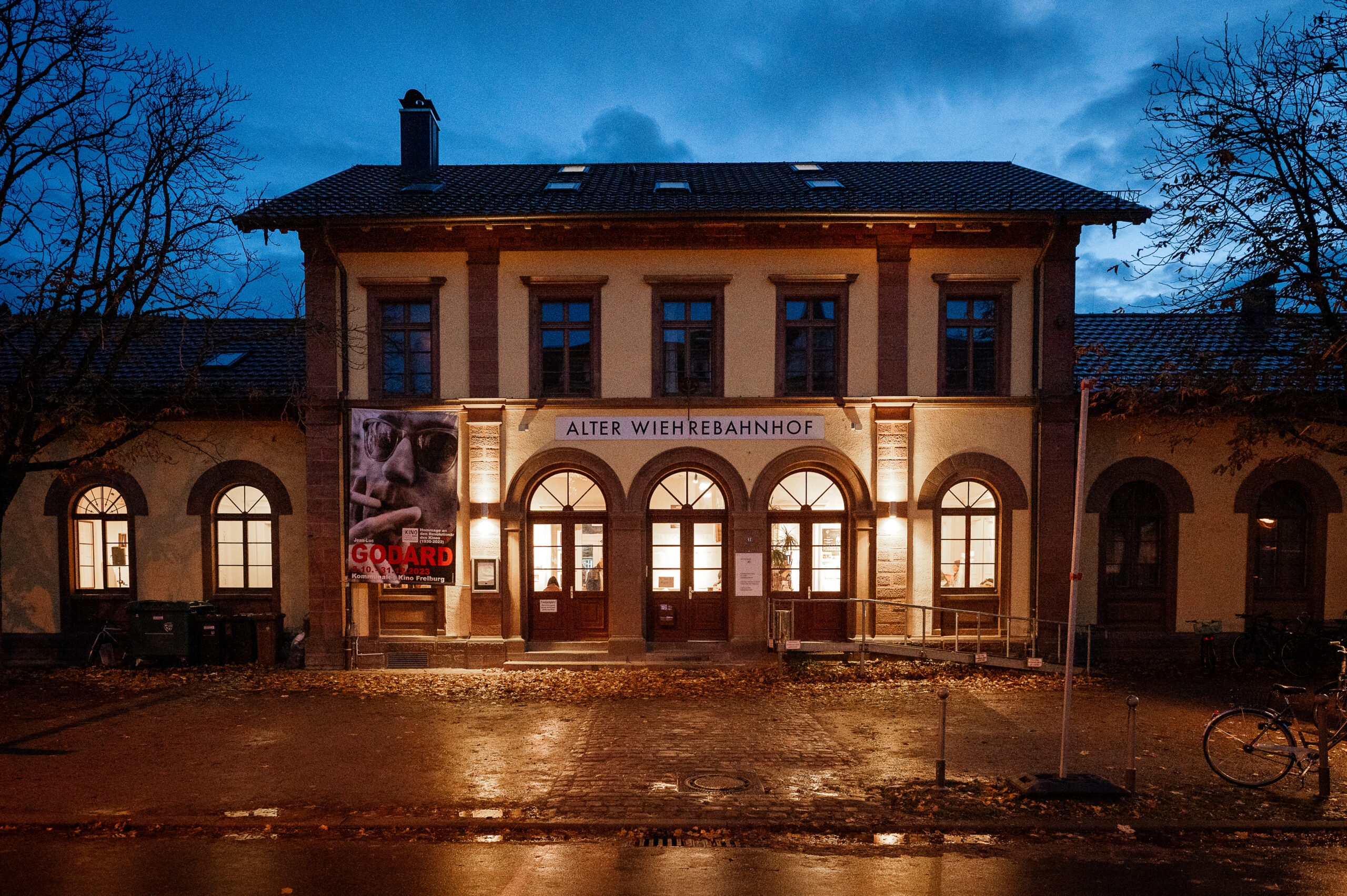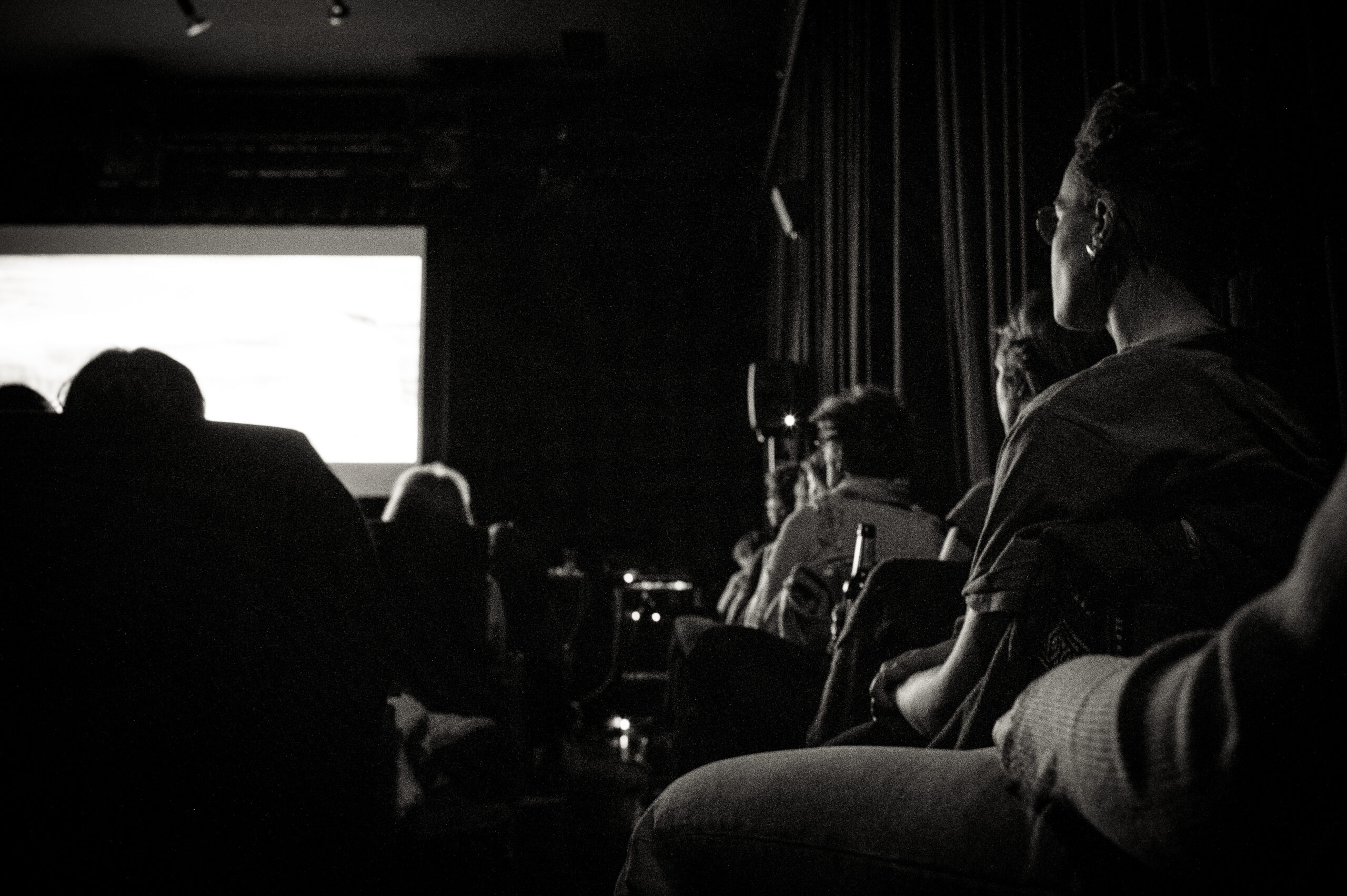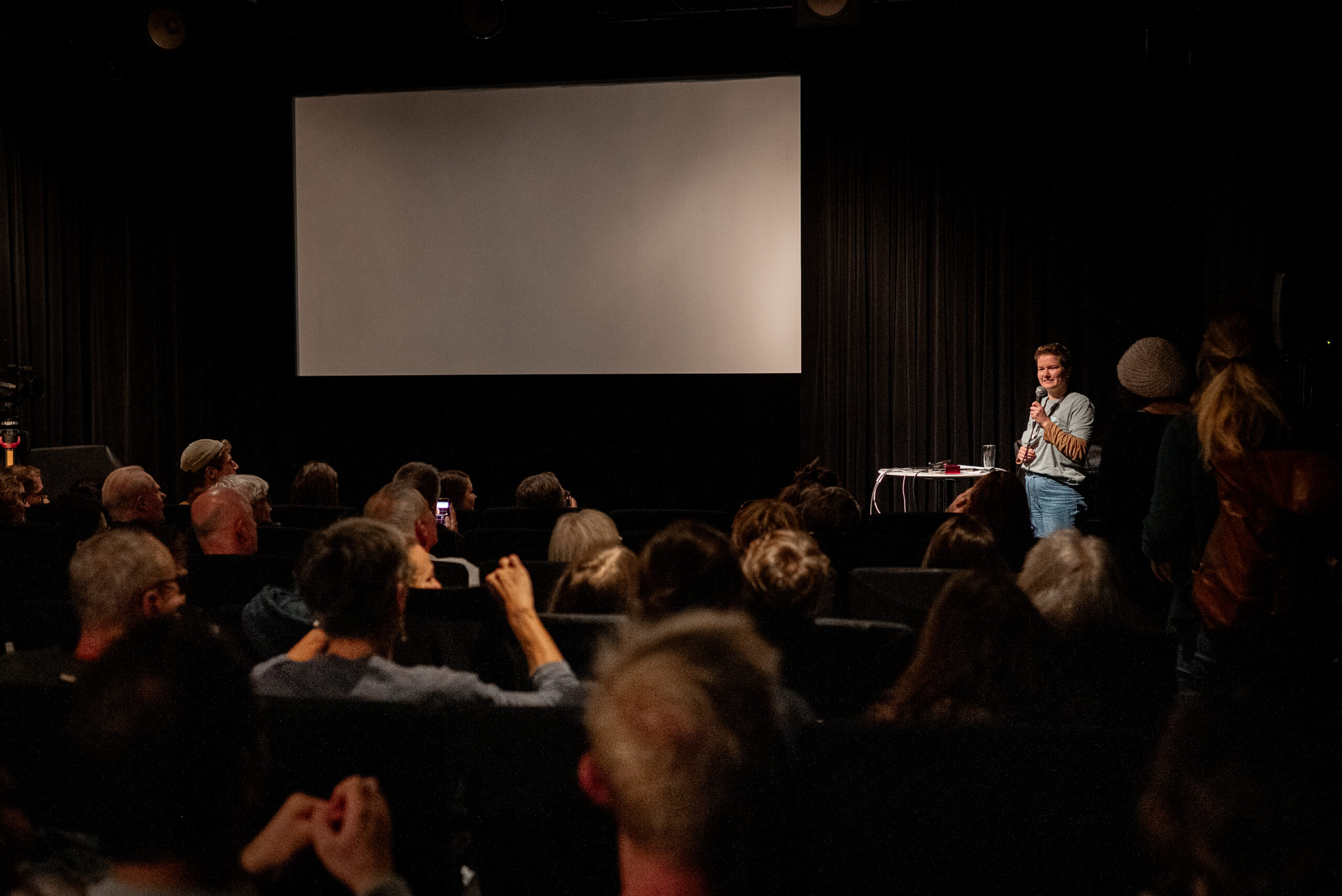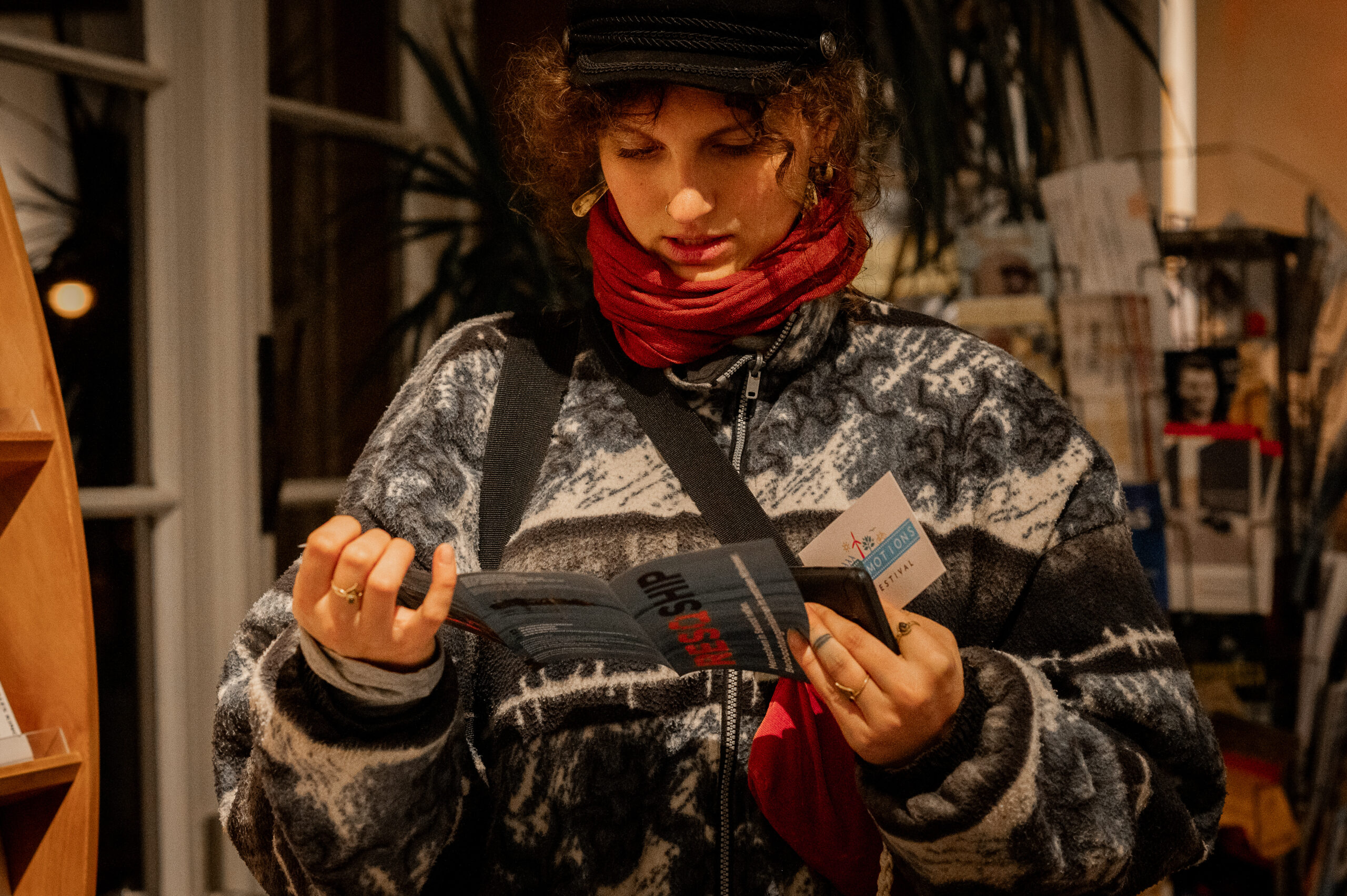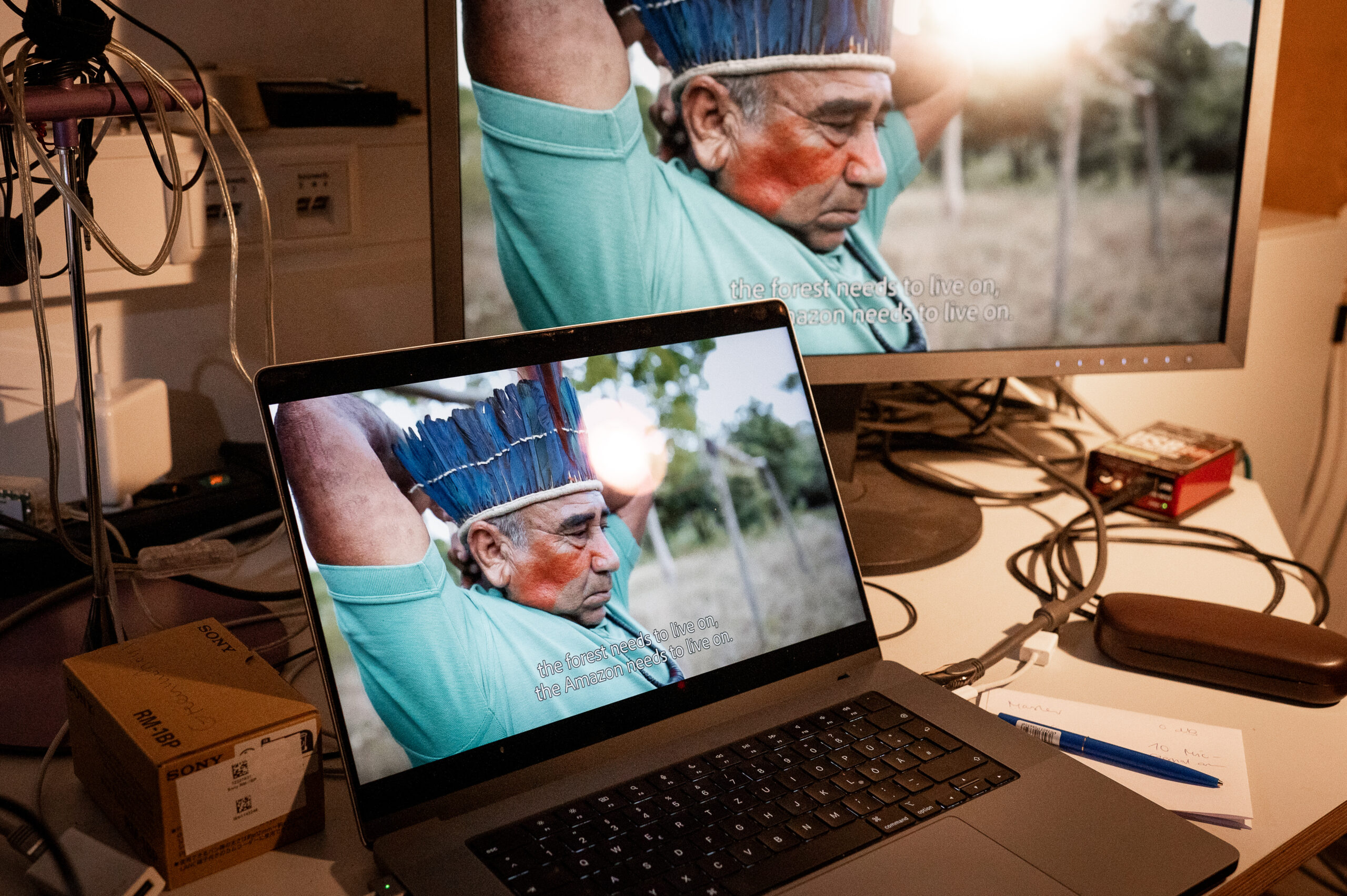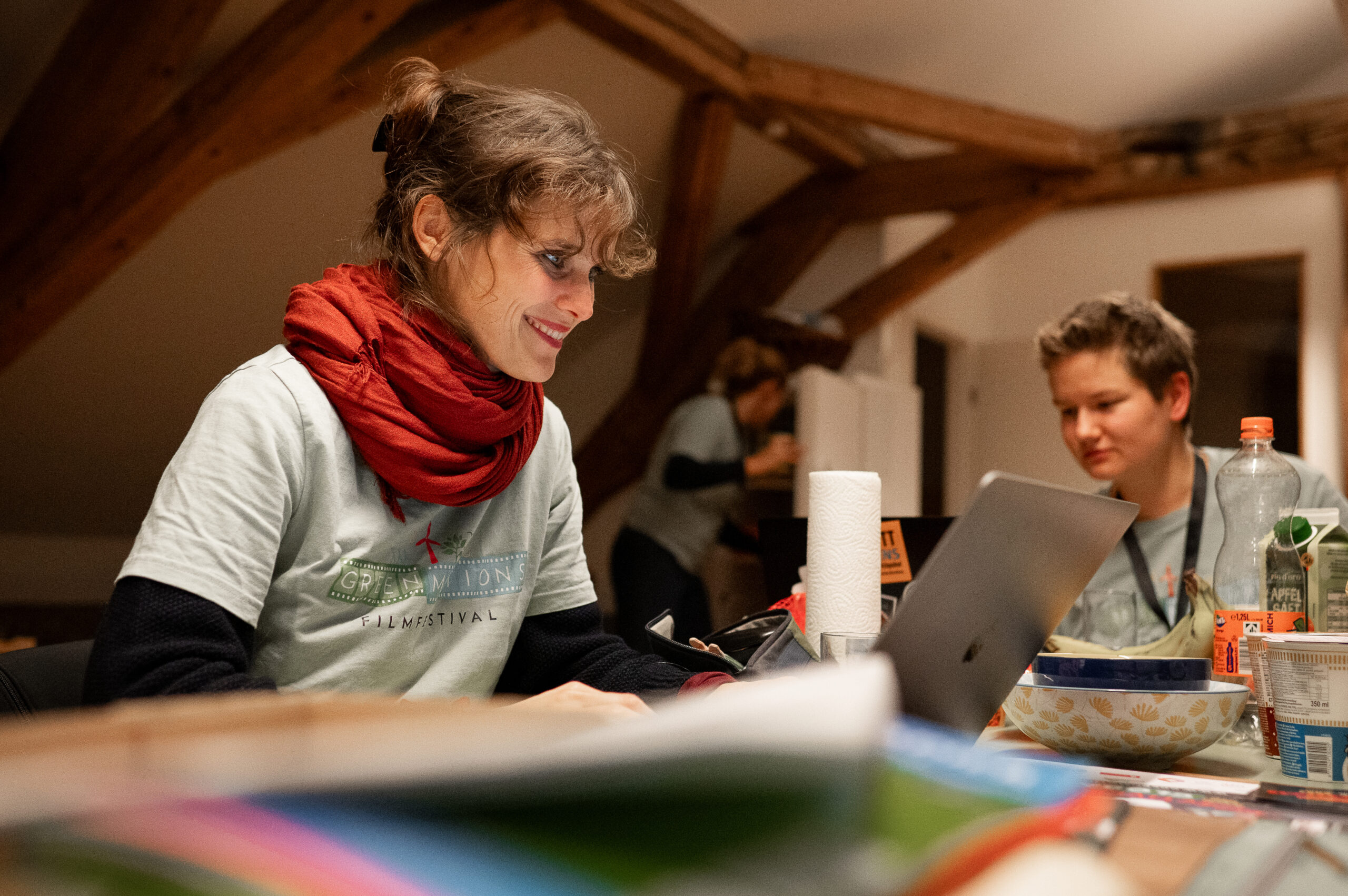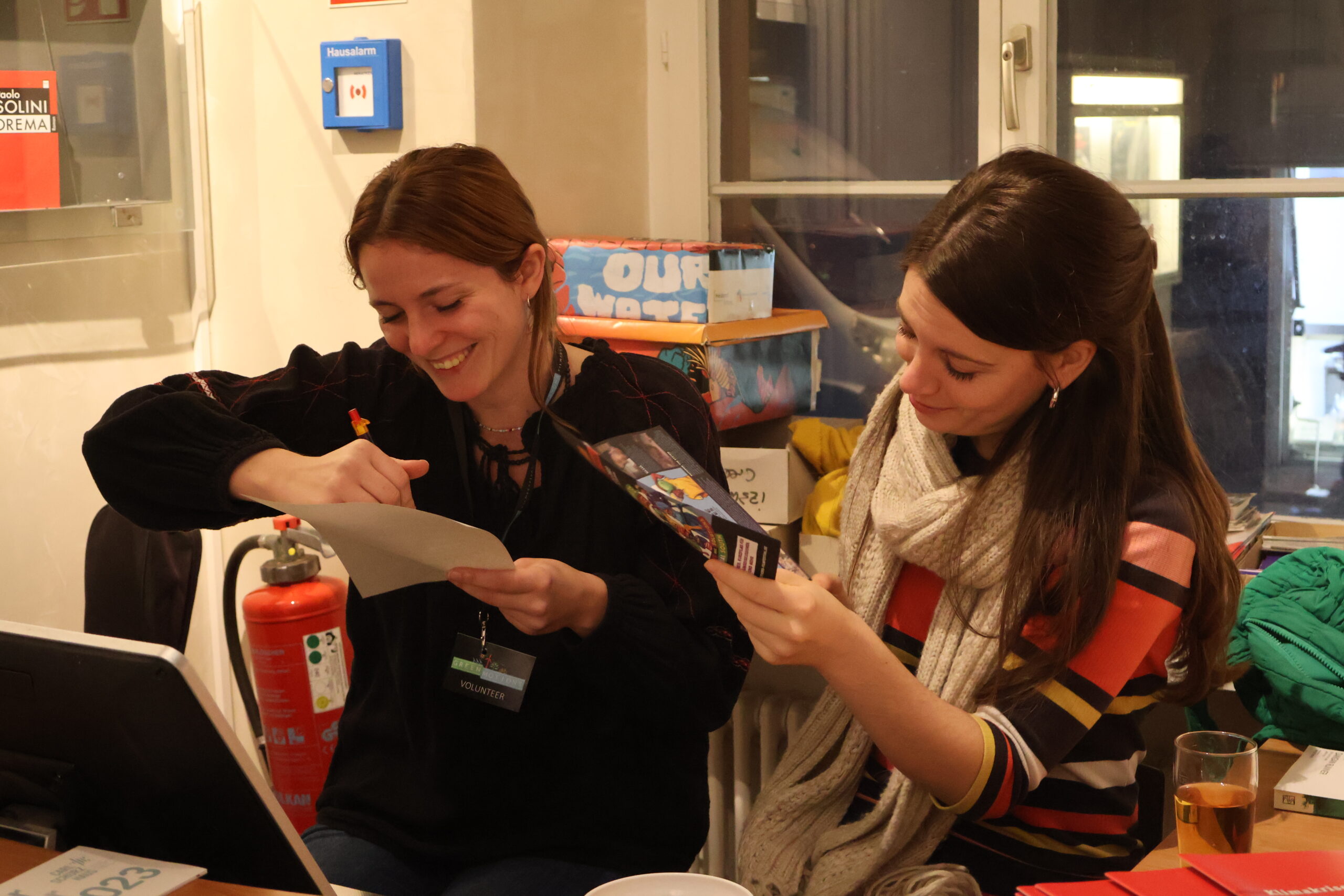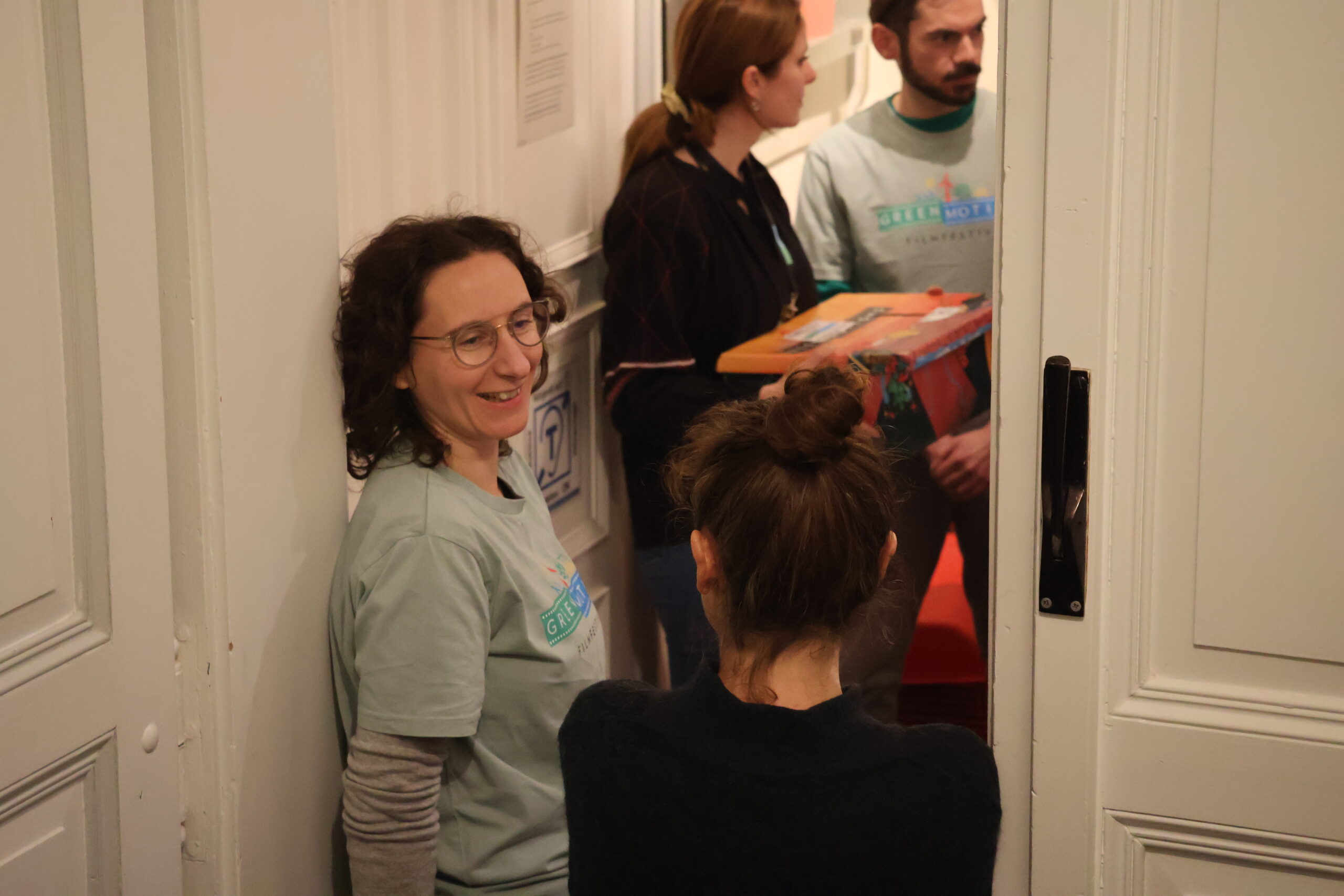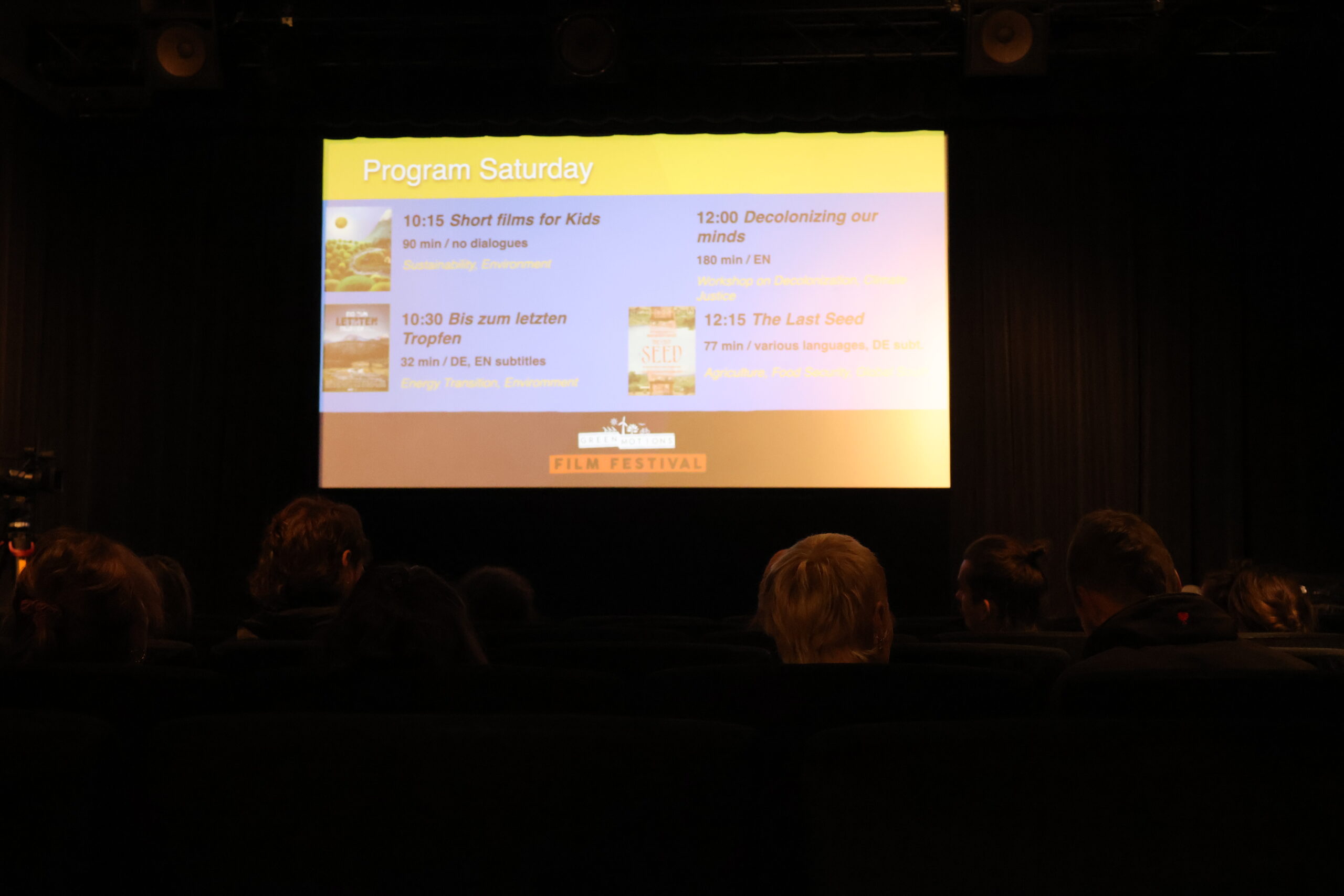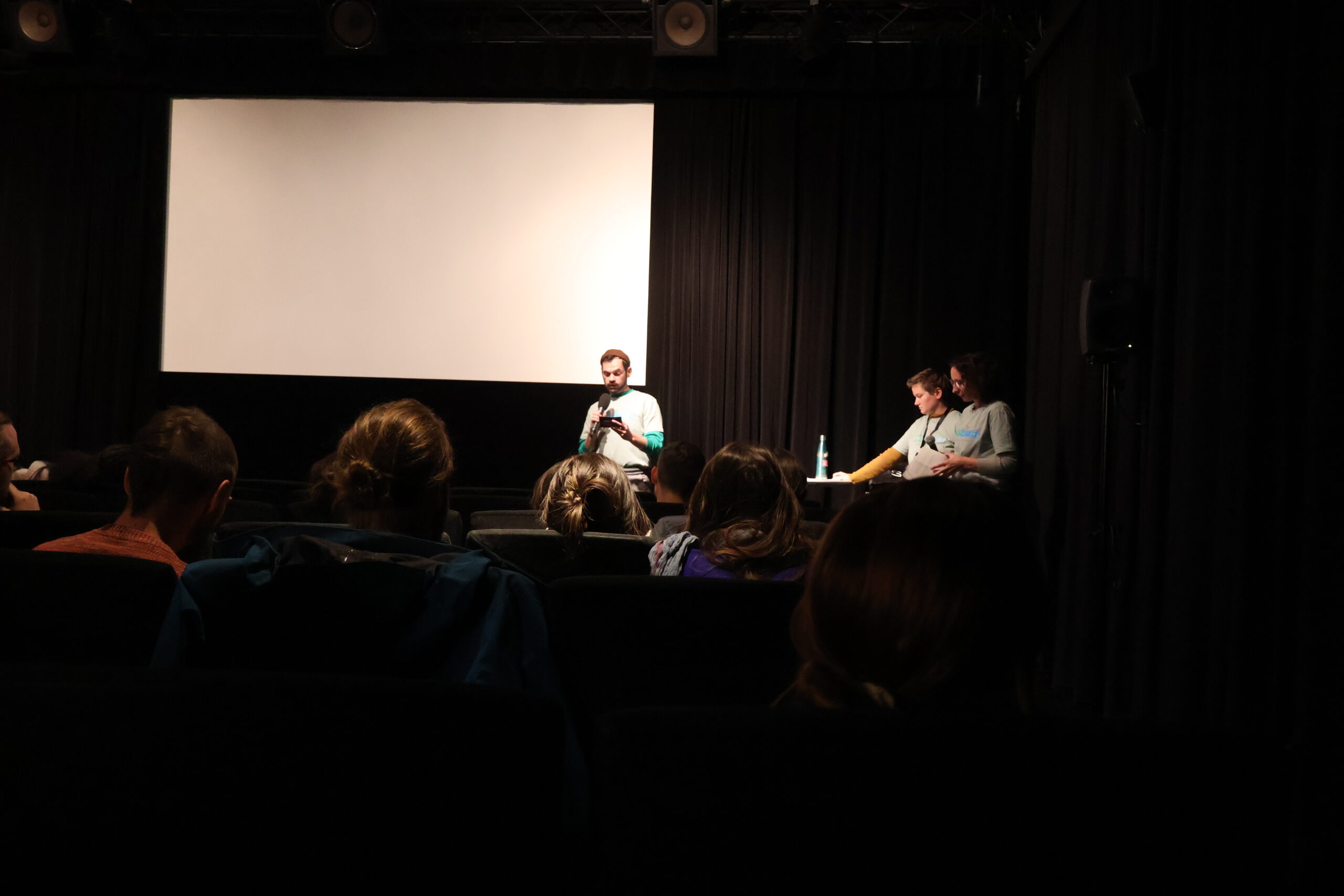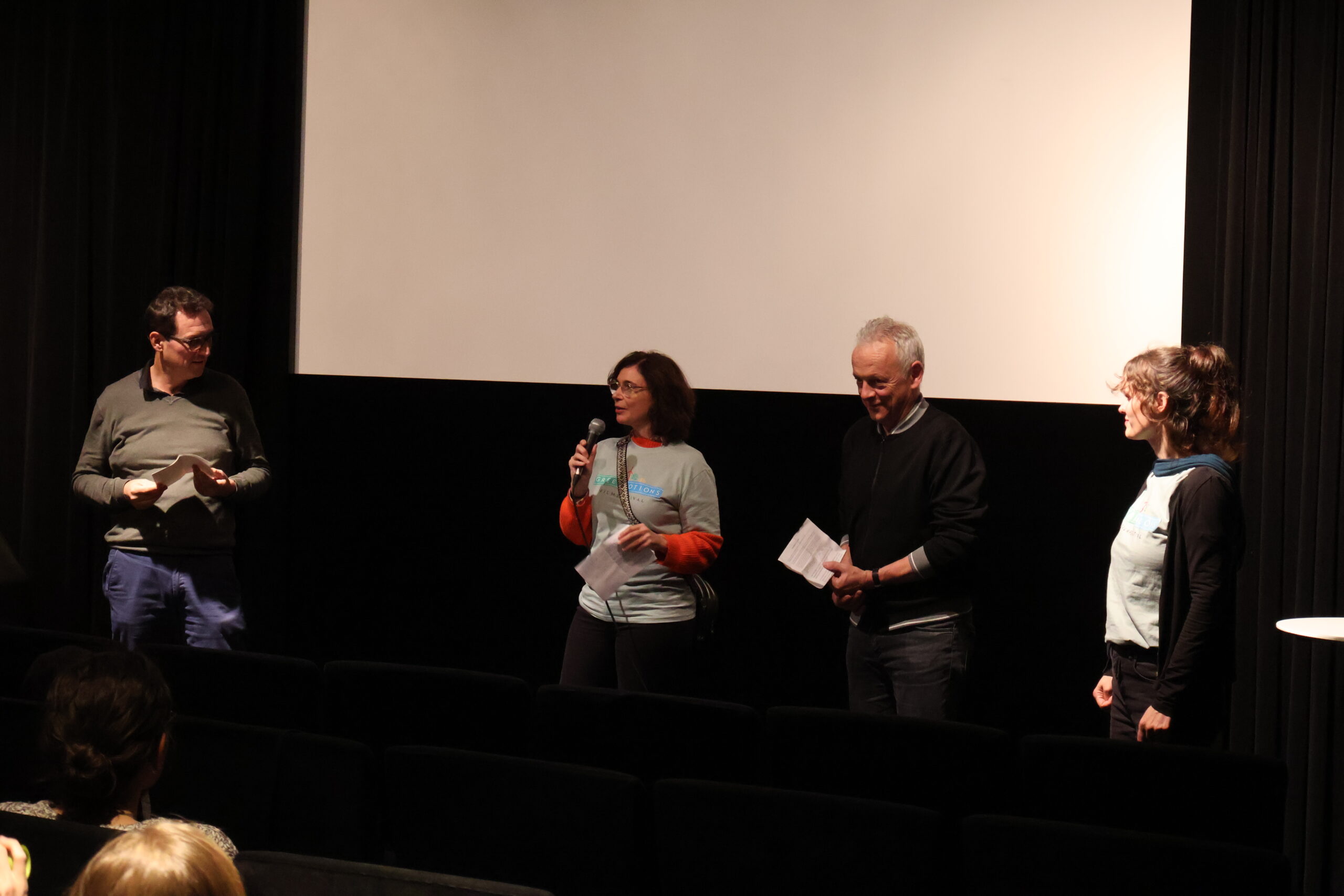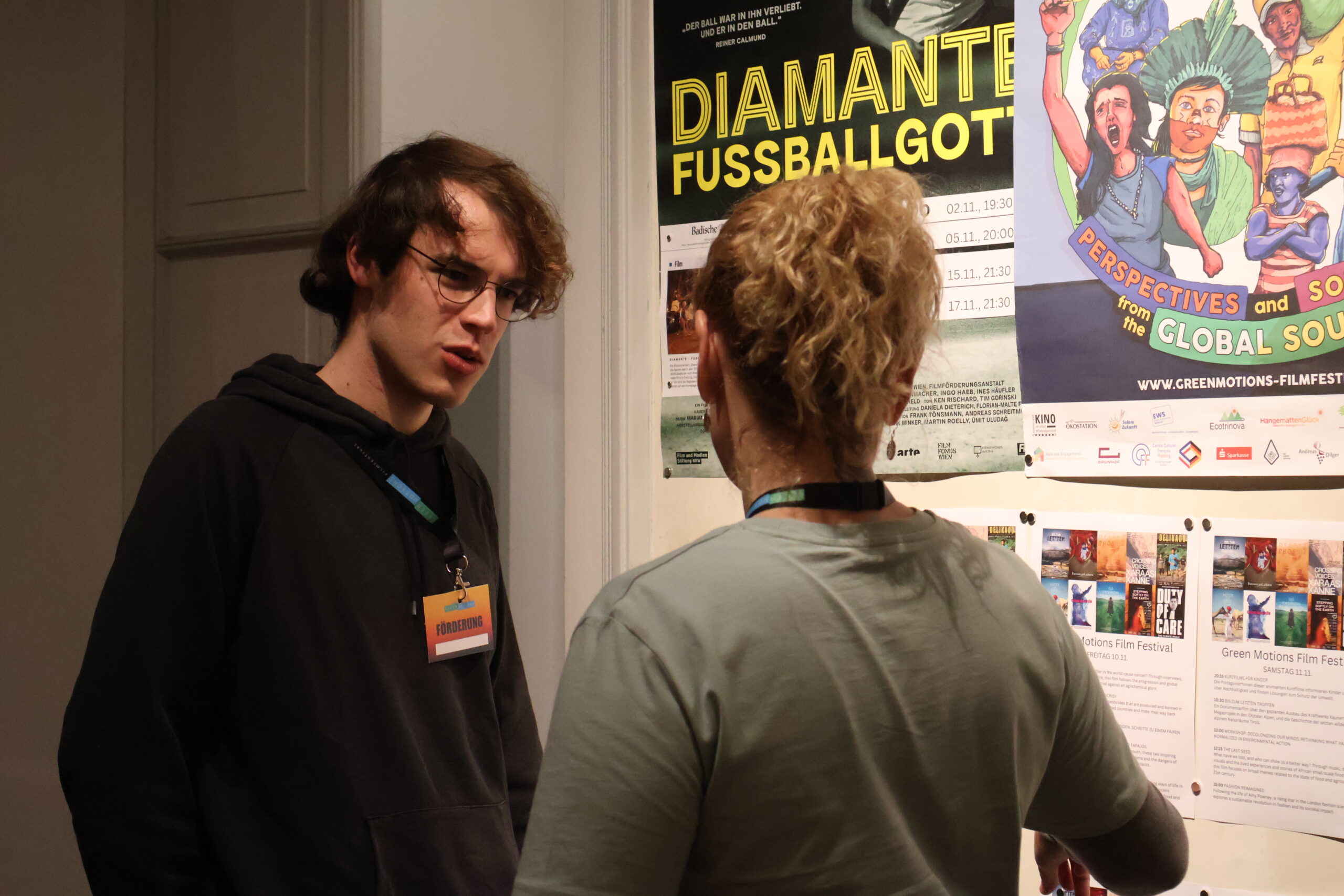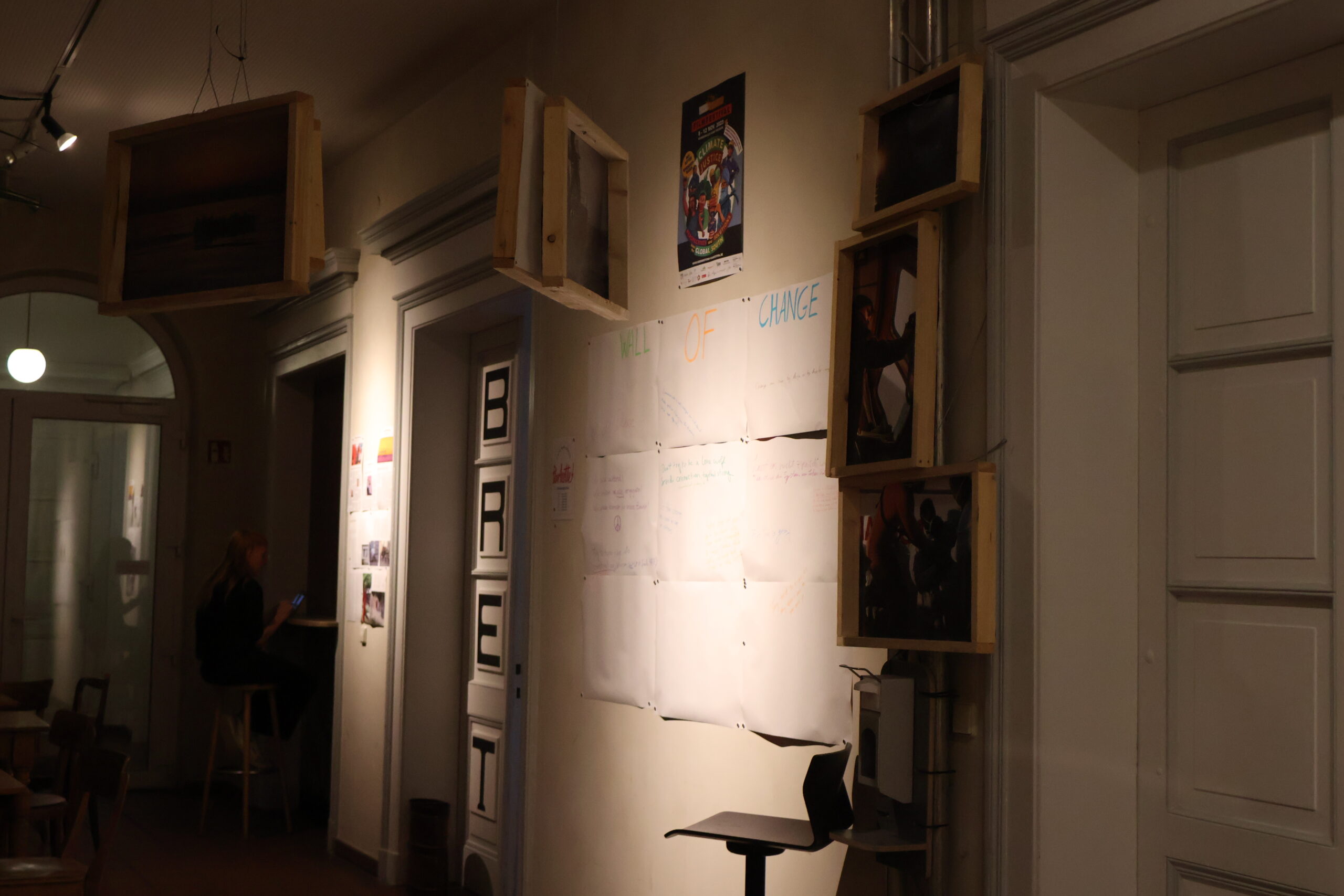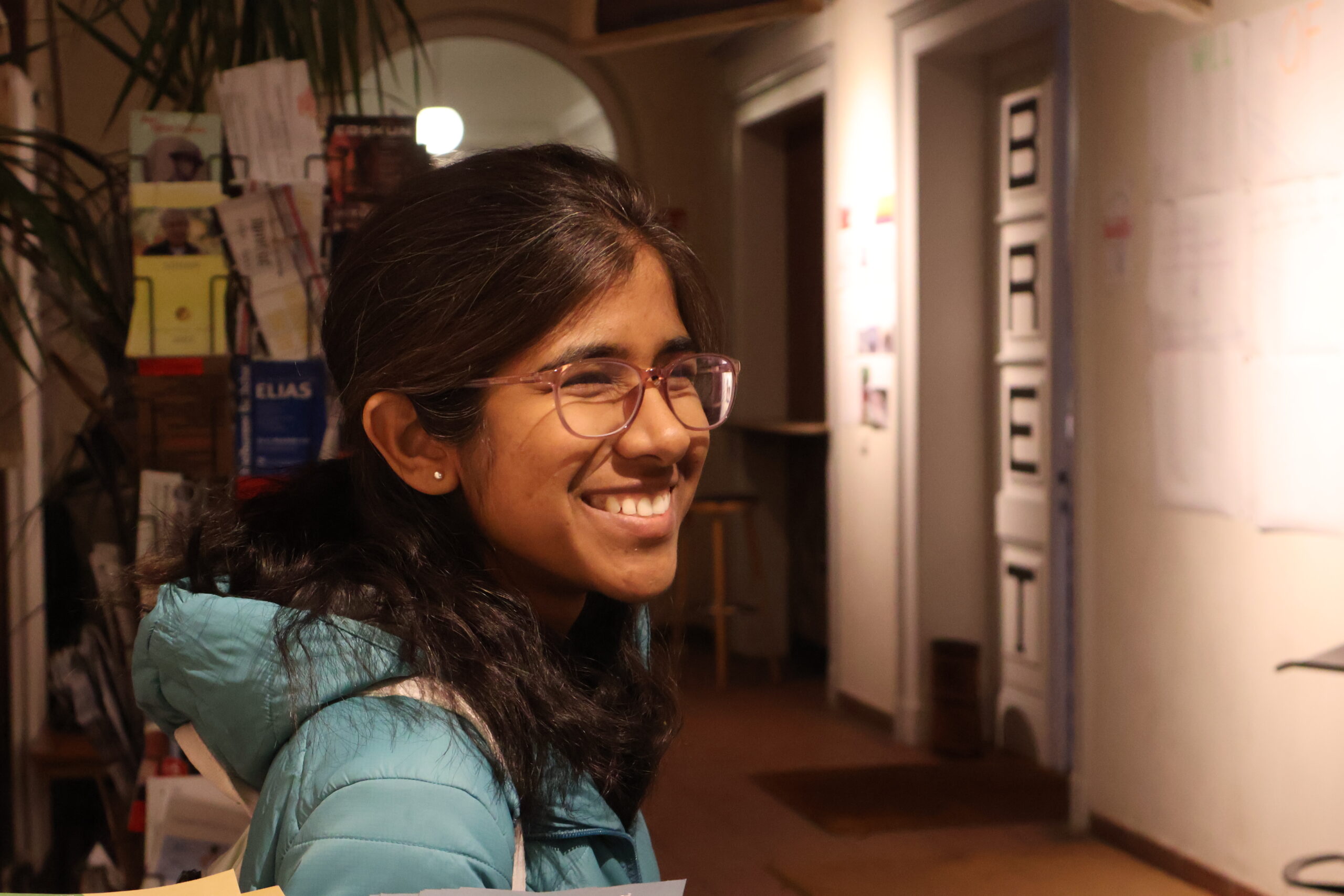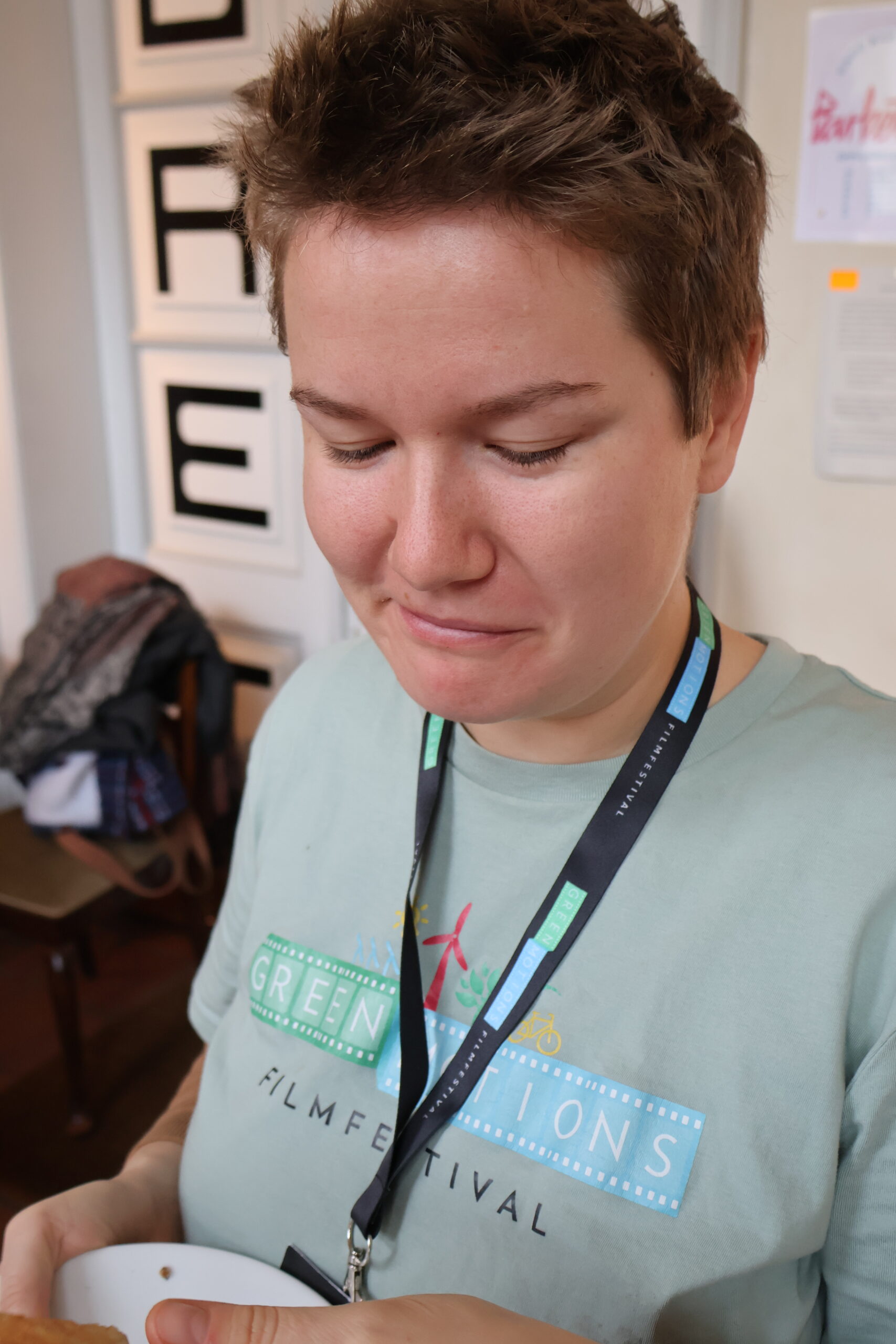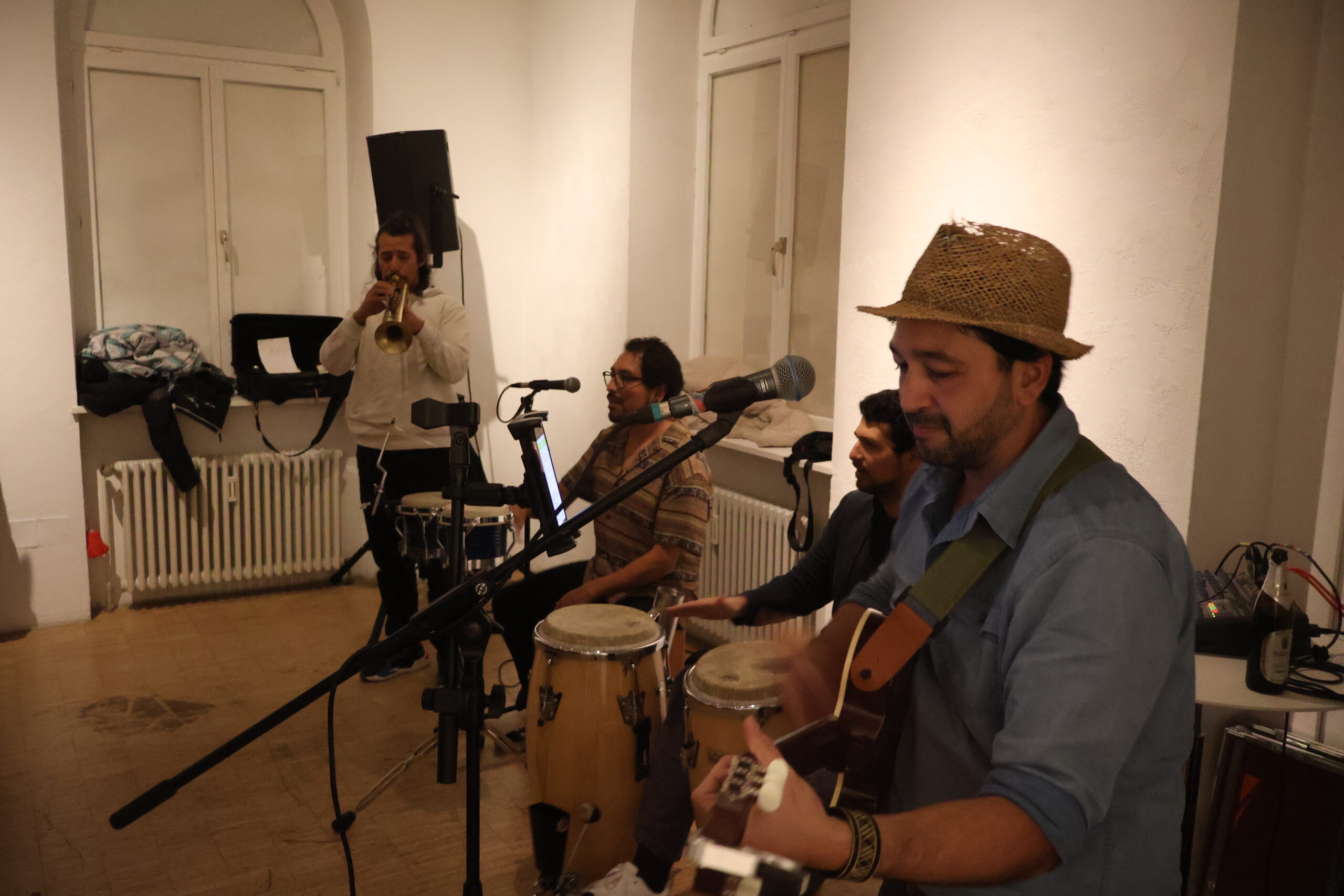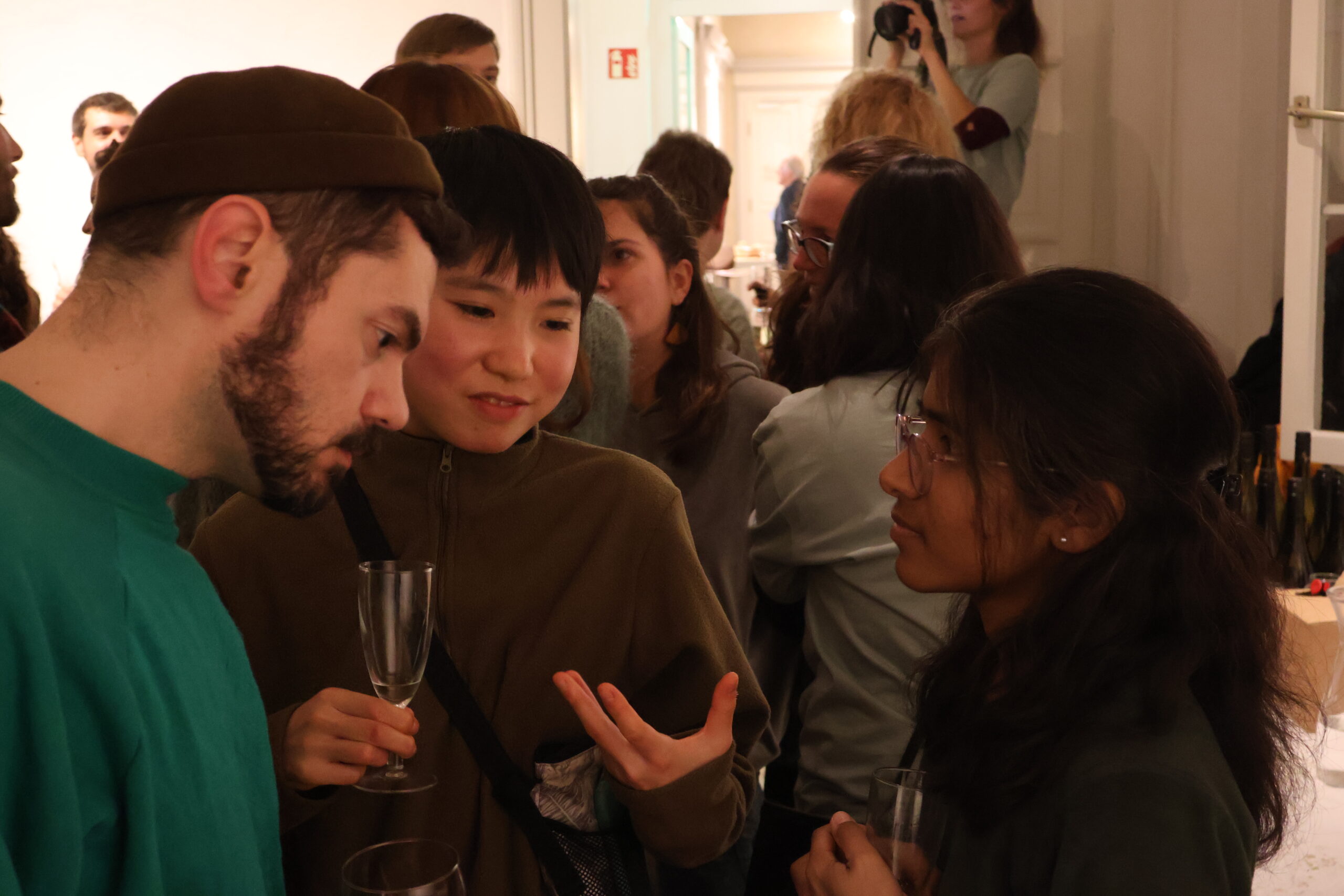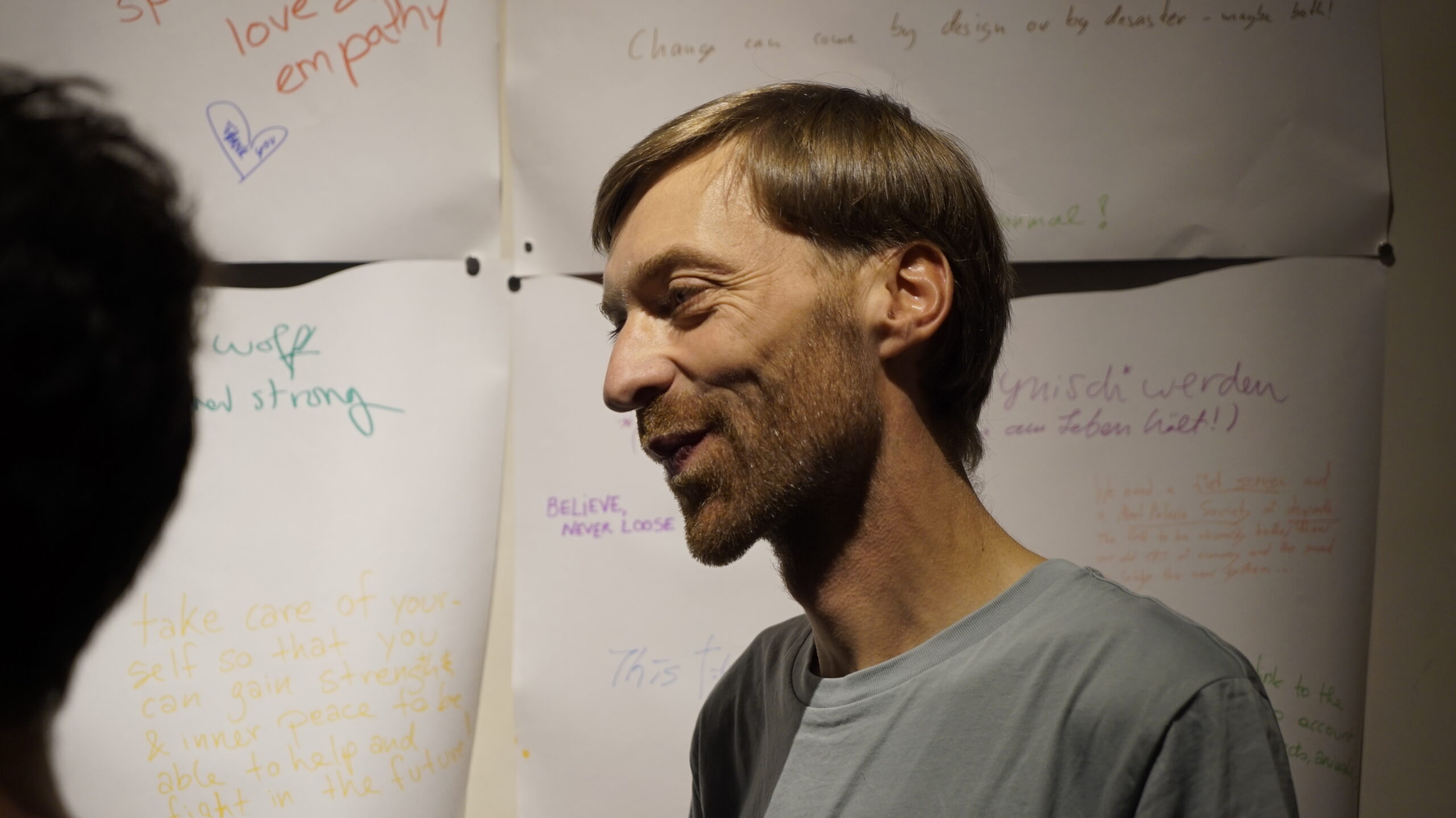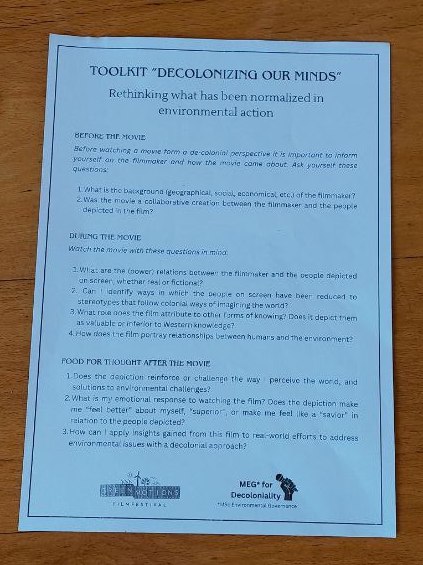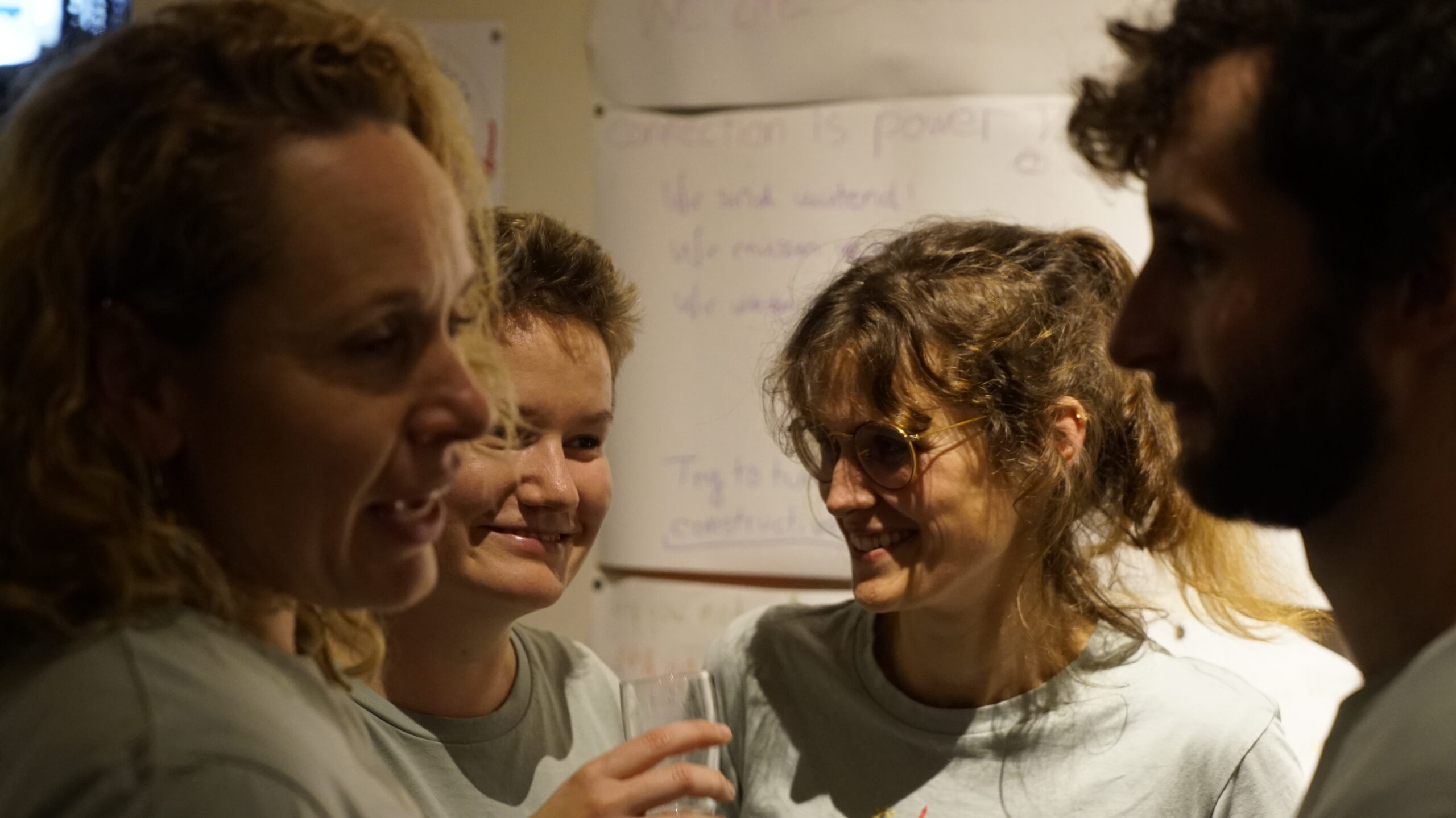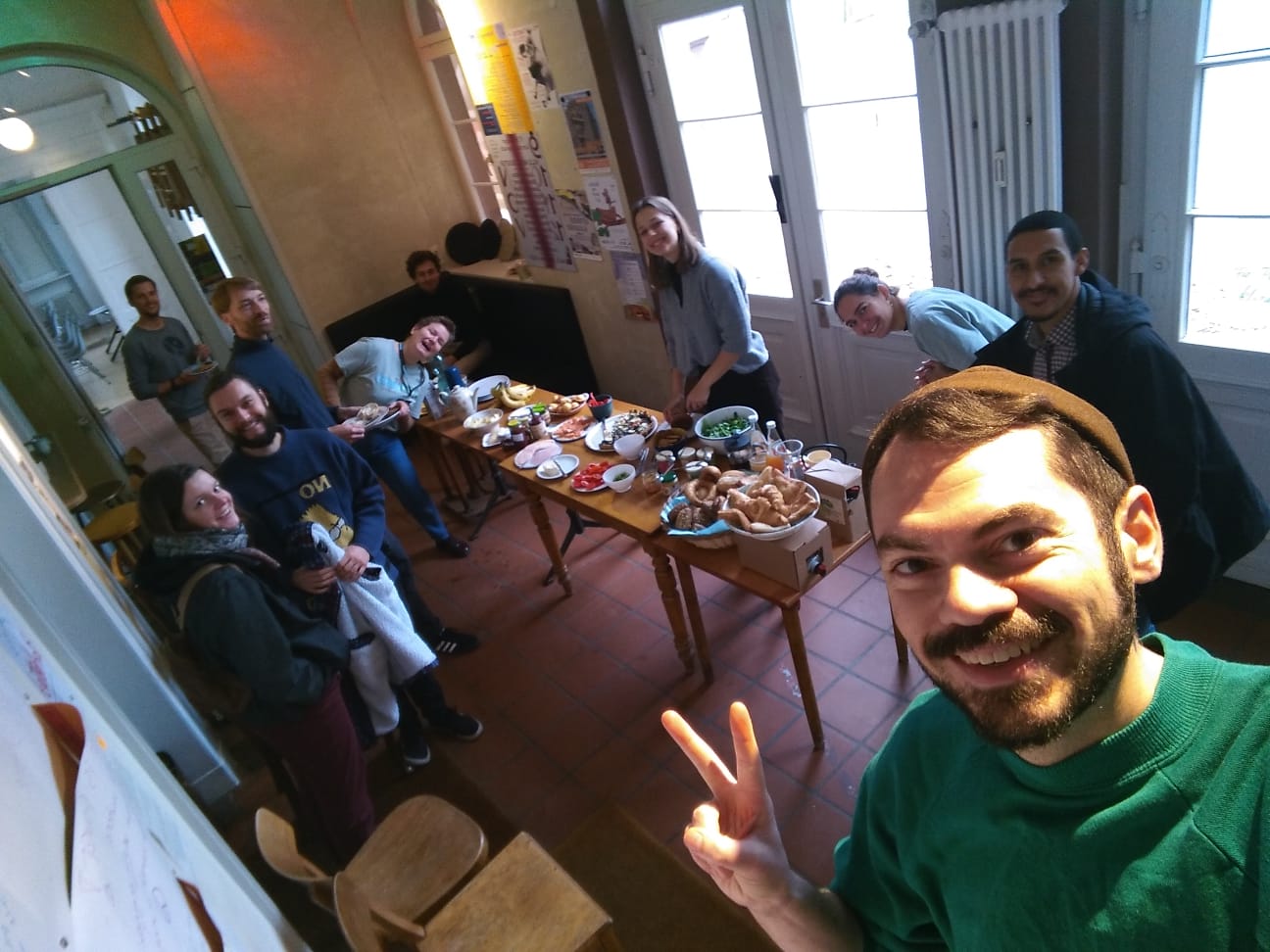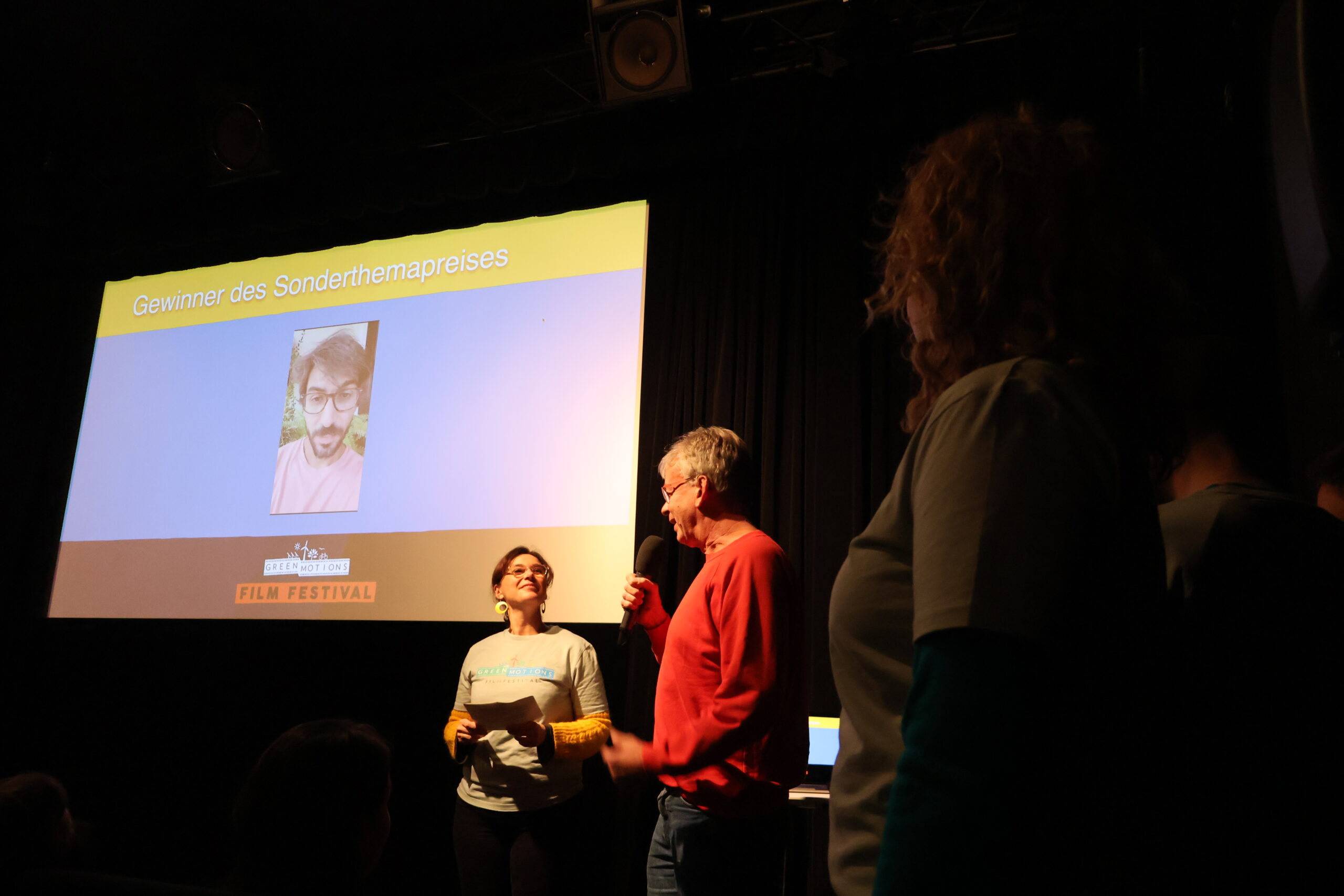We had the pleasure of welcoming a total of 866 visitors at our ninth edition of the Greenmotions Film Festival, which took place from 8 to 12 November 2023 at the Kommunales Kino in Freiburg. A total of 20 screenings were held, 14 of which were followed by 30 to 60-minute discussions. In addition to many inspiring films, there was a motivating workshop, two panel discussions and a delicious food sharing buffet. We would like to thank all volunteers, cooperation partners, sponsors and everyone who helped to make this wonderful festival possible!
With the ninth edition of the festival, we put a focus “Climate Justice: Perspectives and Solutions from the Global South” with our Special Theme. The filmsshonw as part of this category came from all over the world and dealt with a variety of topics. The issue of climate justice came up in every discussion. There was particularly much discussion about whose voice is heard or ignored in the climate debate. The legitimacy of directors to report on the lives and struggles of other people was also scrutinised and discussed in depth. The films that were shown were: “Chao Carbón” by Zeta Fernández and Ladislao Palma, “Powerlands” by Ivey-Camille Manybeads Tso, “I am More Dangerous Dead” by Majiye Uchibeke, “Threatened Tapajos” by Thomaz Pedro, “Stepping Softly on the Earth” by Marcos Colon, “Mapping Survival” by Nacho Corbella and “Desert Phosphate” by Mohamed Sleiman Labat.
A jury consisting of Mehves Öztürk (photographer and activist), Juan Andres Zegers (urban planner and architect with a focus on sustainability) and Matthias Erbacher (producer) decided to award this year’s prize for the best film in the special topic category to the film “Threatened Tapajos”.
The response to the films was overwhelmingly positive. Many people shared their emotions with us and felt particularly inspired to take a closer look at climate and justice issues and get involved in some way.
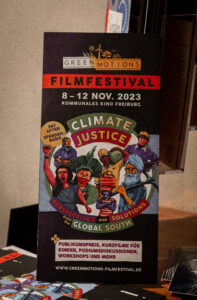
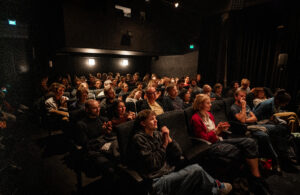
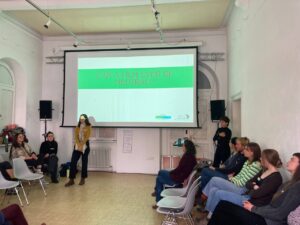
In an interactive workshop with over 35 participants, colonial continuity in films was questioned and analysed. The workshop was organised by international students from the university of Freiburg (MEG Master). Ways of evaluating/measuring justice and equality (e.g. between the filmmakers and the filmed persons) were highlighted.
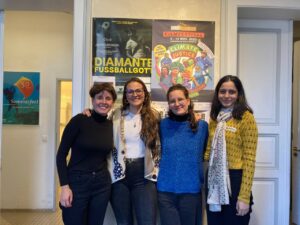
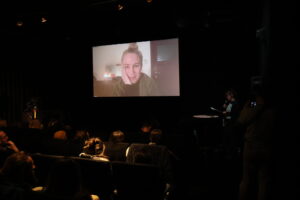
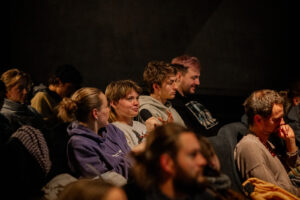
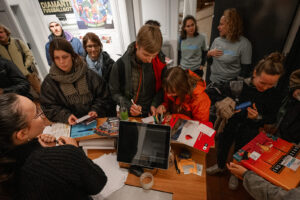
14 films competed for the Audience Award. The film “Duty of Care” opened this category of films on Wednesday evening. The film discussed the role of litigation in the fight for climate justice and was followed by a panel discussion with three experts in the field of legal action for climate justice: Sarah Tak (producer of “Duty of Care”, lawyer and coordinator of Klimaatzaak (Belgium), Noah Walker-Crawford (research fellow at the Grantham Research Institute of the London School of Economics) and Franziska Valdés Cifuentes (lawyer and PhD student at the University of Marburg focusing on the scope, limits and binding effect of the 1.5 degree target under international law in German constitutional law). They spoke about the importance – and the challenge – of having legal cases based on evidence. They also pointed out how important it is for scientists to succeed in communicating scientific findings in a way that lawyers can work with. However, as our panellists explained, legal proceedings can be lengthy and expensive. Even when lawsuits are won, some have seen governments fail to change anything, which is a worrying sign in democratic states. Noah Walker-Crawford also pointed out that these cases can only take place within the existing legal framework, which does not necessarily reflect the reality and motivations of some people from the Global South, particularly from indigenous communities, going to court. Thus, the challenges remain, but we were nevertheless very pleased to learn a few weeks later that Sarah Tak’s team had won their case in Belgium.
On Friday afternoon, another panel discussion with (political) activists from the agricultural sector took place on the topic of pesticides. This discussion was organised after the screening of the two films “Pesticides: the European Hypocrisy” by Stenka Quillet and “Into The Weeds” by Jennifer Baichwal. It was moderated by Luciano Ibarra from the Freiburg GartenCoop. The panelists were Rodrigo da Silva from the Green Party and Wolfgang Hees from the Freiburg Food Council. In the discussion, in which the audience was also very actively involved, the ecological problems of excessive pesticide use were highlighted as well as the political difficulties in regulation and global injustices, which are exacerbated by European companies exporting banned pesticides to the Global South and thus endangering small-scale farming structures on the ground.
In addition, many other sustainability and environmental issues were addressed in the numerous films shown during the five-day festival. From the dairy and fashion industry with “Milked”, “Fashion Reimagined” and “Slay” to deforestation in the Philippines or the rewilding programmes in Denmark with “Delikado” and “Organized Wilderness” passing by different farming models and challenges with “The Last Seed”, we were able to explore many facets of what sustainability means – and what it doesn’t mean.
Some highlights included the screenings of “Outgrow the System” and “Shepherds – Guardians of the Earth”, which drew large audiences to the cinema, so much so that we were even able to open the gallery for “Shepherds – Guardians of the Earth”. Following “Outgrow the System”, there were exciting discussions about the various options for subjecting our current economic system to a sustainable transformation. This year, we were also delighted to collaborate with the Centre Culturel Francais to screen the film “Crossing Voices”, which tells the story of an agricultural cooperative in Mali and the decades-long struggles of migrants in France. As the last film from the Audience Award, we showed the film “FINITE”, which tells the story of two activist struggles against environmental destruction linked to large-scale fossil fuel projects in Hambach Forest (Germany) and County Durham (England). The overwhelmingly positive ratings from the audience earned “FINITE” the Audience Award together with “Fashion Reimagined”.

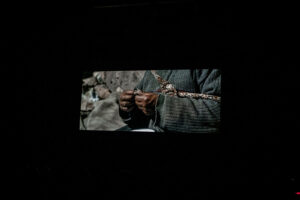
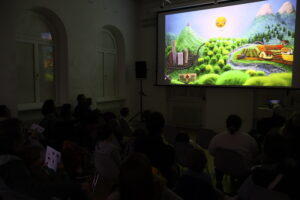
Saturday kicked off with a new programme introduced this year: We put together five short films on various environmental topics especially for our younger guests aged five and up. The prize for the best short film was awarded by the young guests themselves – as with the audience award. Based on the ratings from both screenings on Saturday and Sunday, the film “What’s up with the sky?” was chosen as the winner.
As every year, the last day of the festival on Sunday began with a cosy get-together for a buffet of rescued food and ended with the popular international short film competition followed by an awards ceremony.
The short film jury consisting of Nina Baermann (editor), Jaume Gil I Llopart (SUNCINE, screenwriter), Bernward Janzig (freelance journalist) and Sigrid Faltin (filmmaker) conducted the evening and awarded “The Invention of Less”, an animated film about a polar bear fleeing climate change to Zurich, as the best short film. Afterwards, we toasted the successful festival weekend with wine from Andreas Dilger and rounded off the evening with live music from four of the seven members of the band LaTocata.
